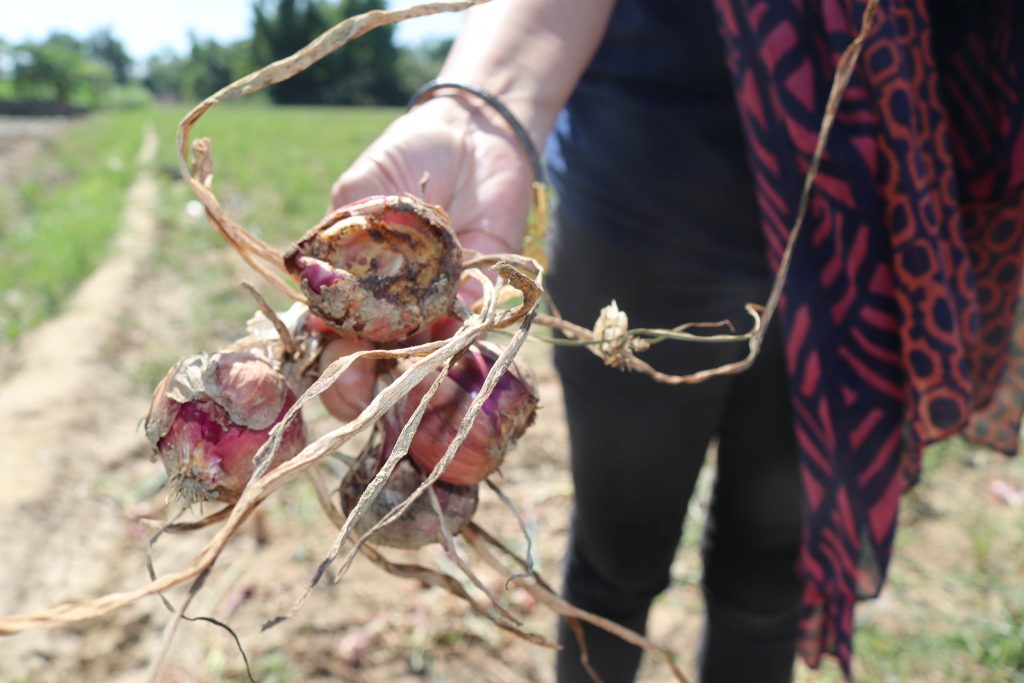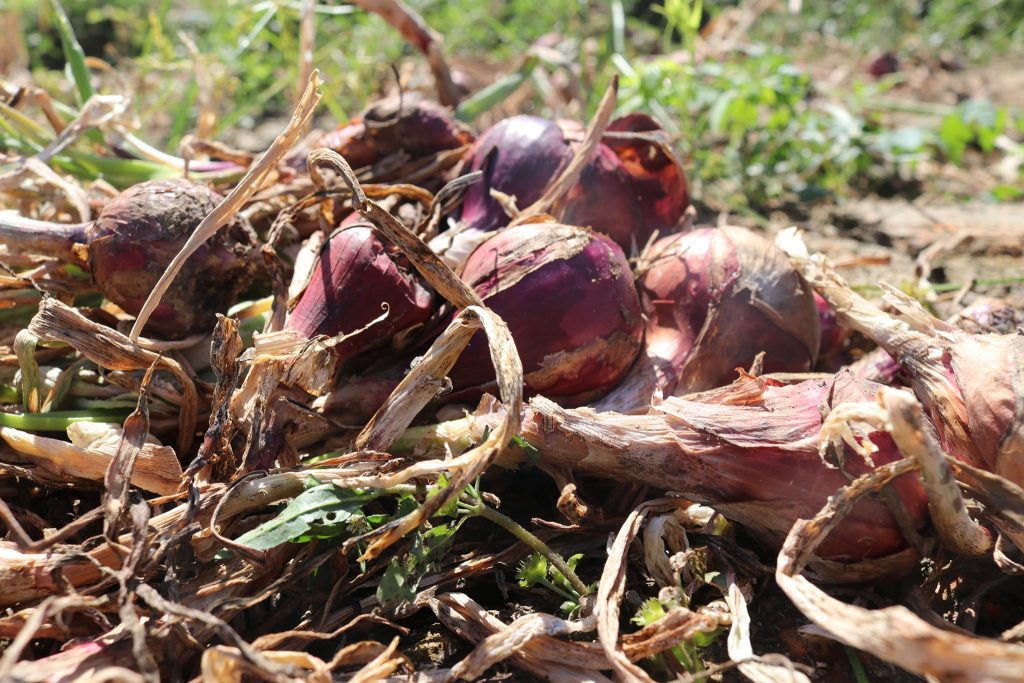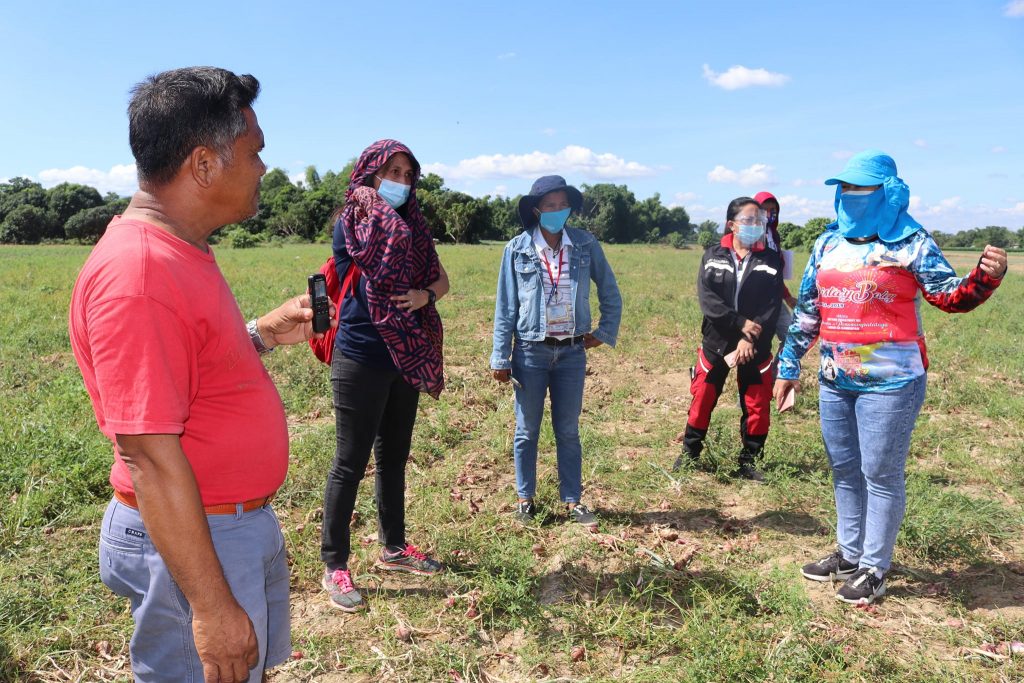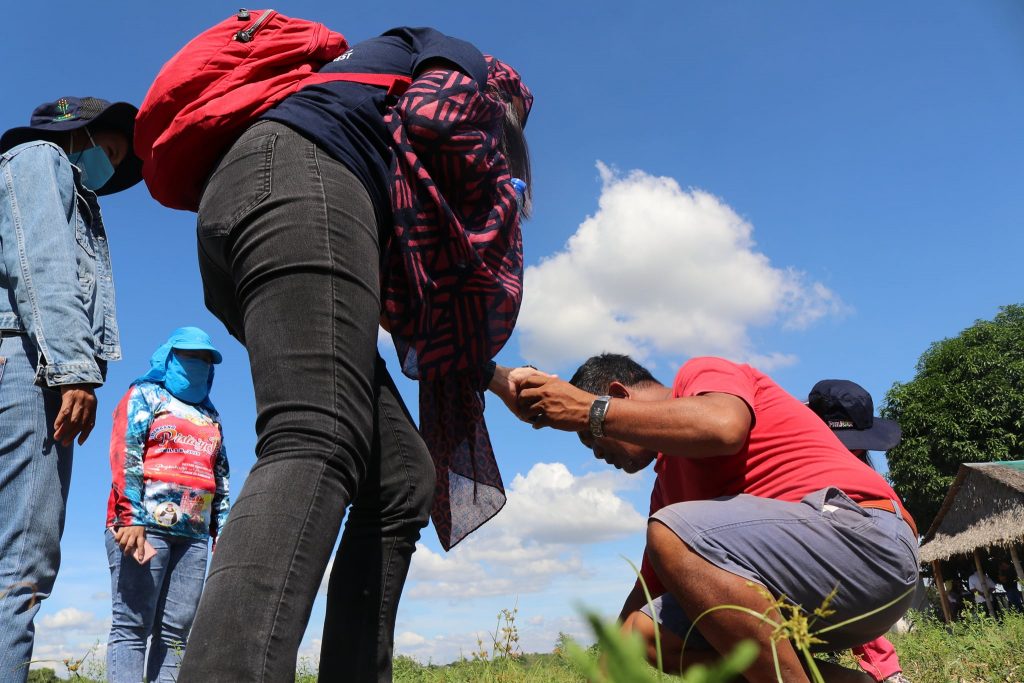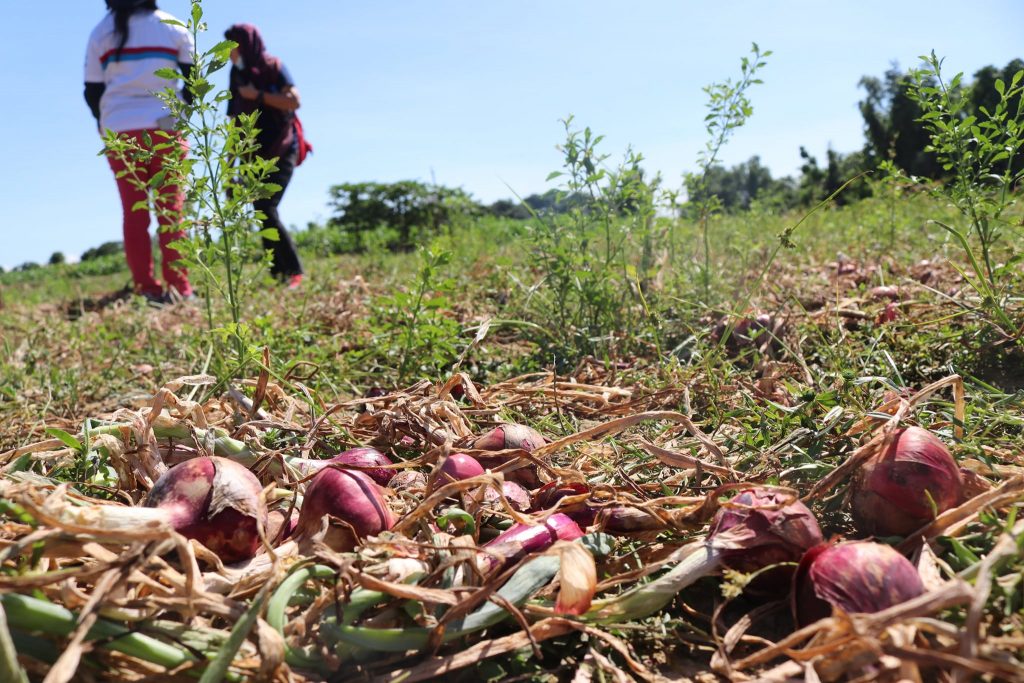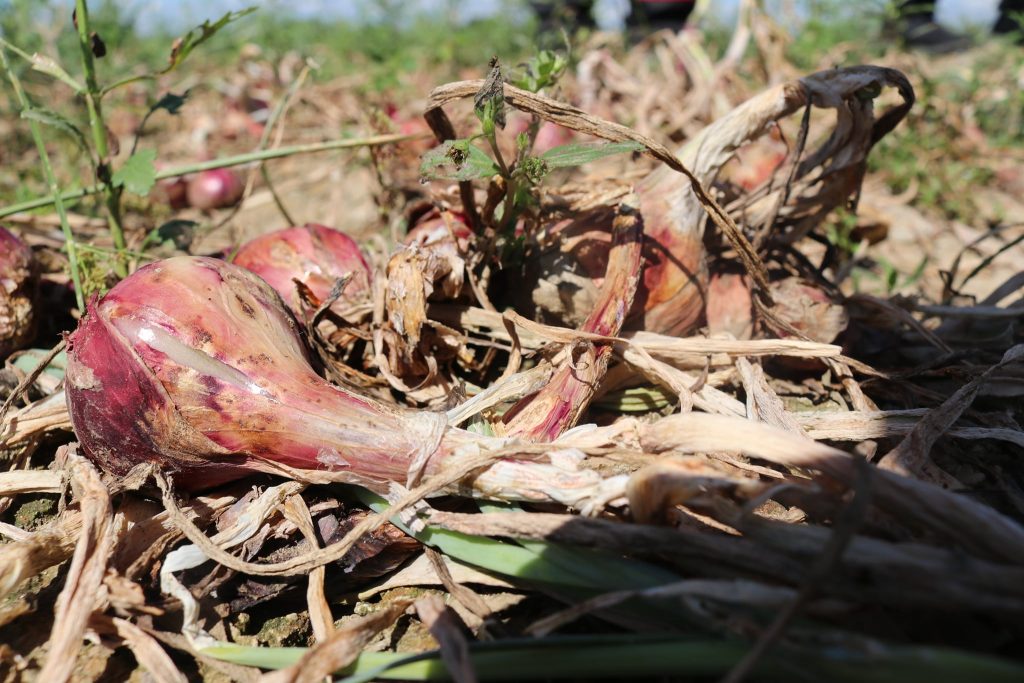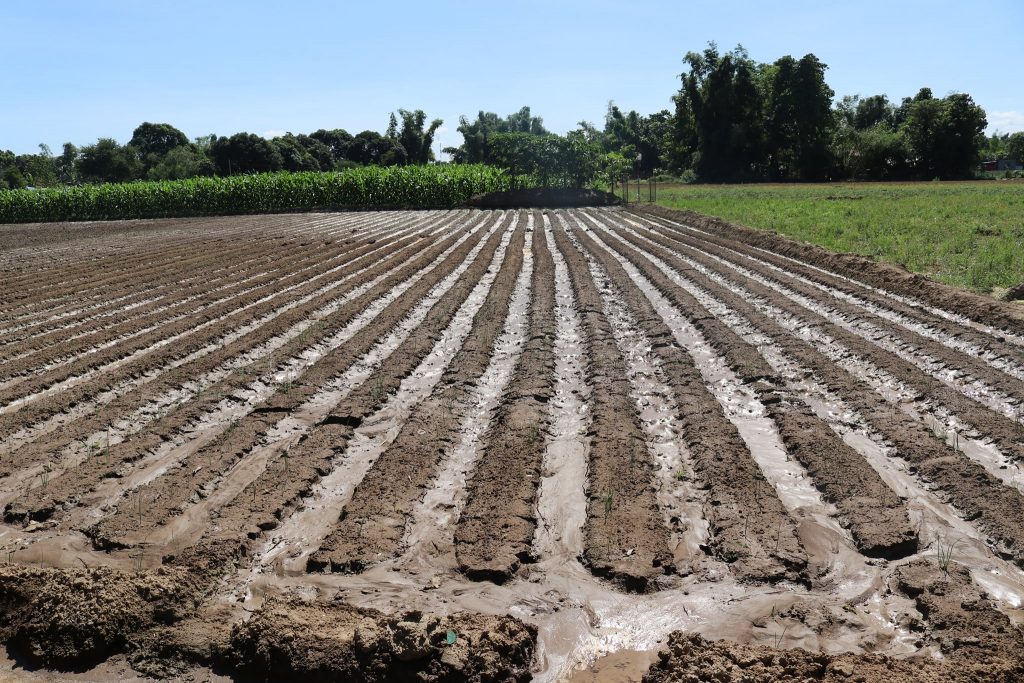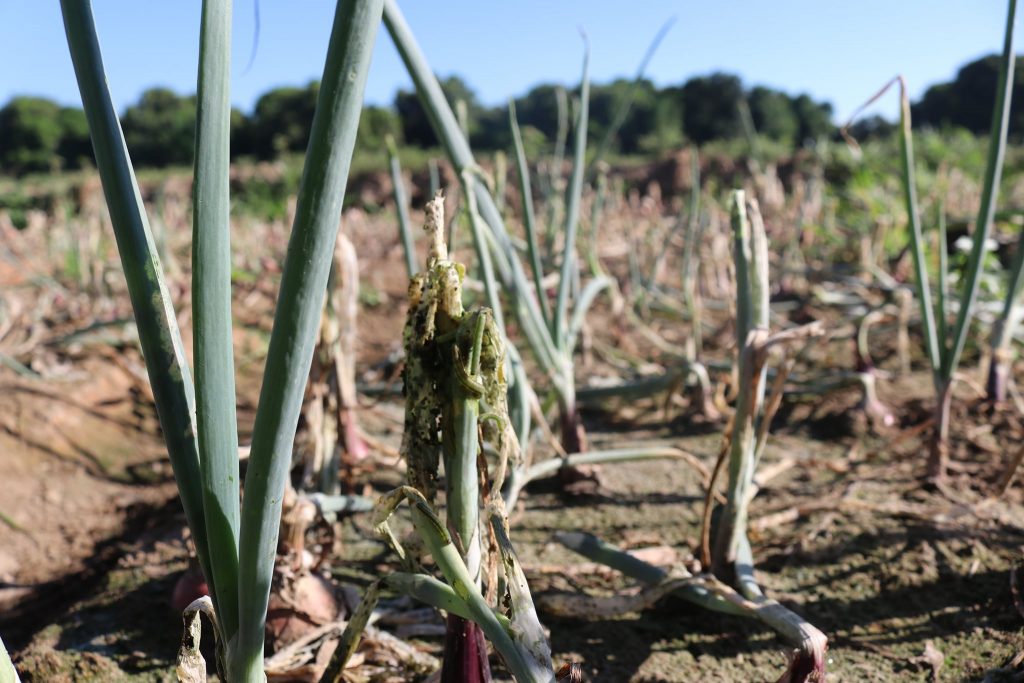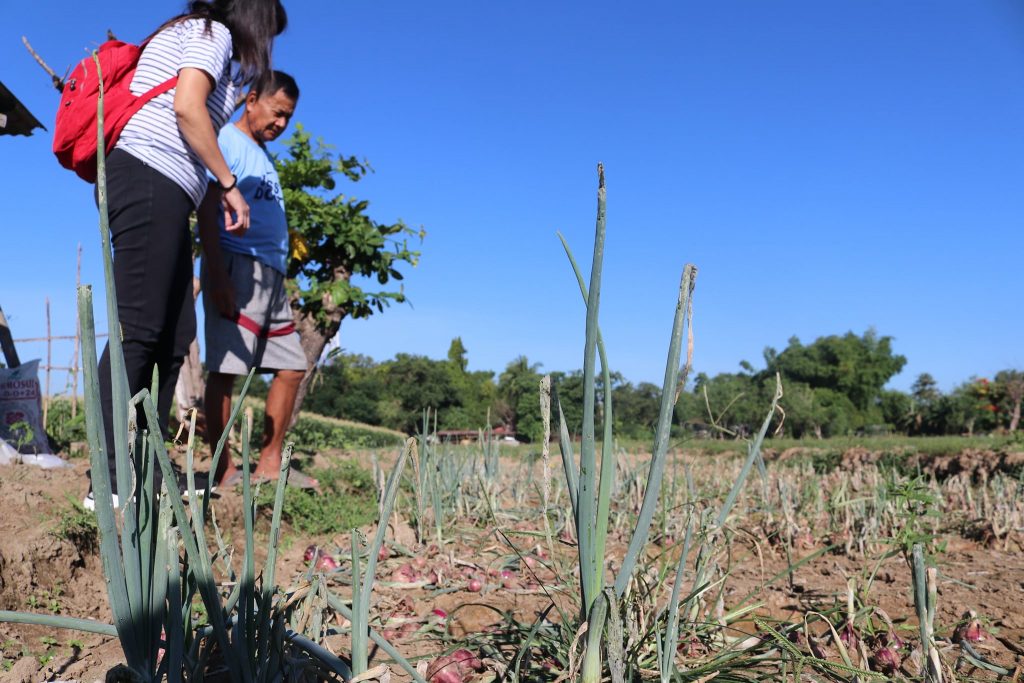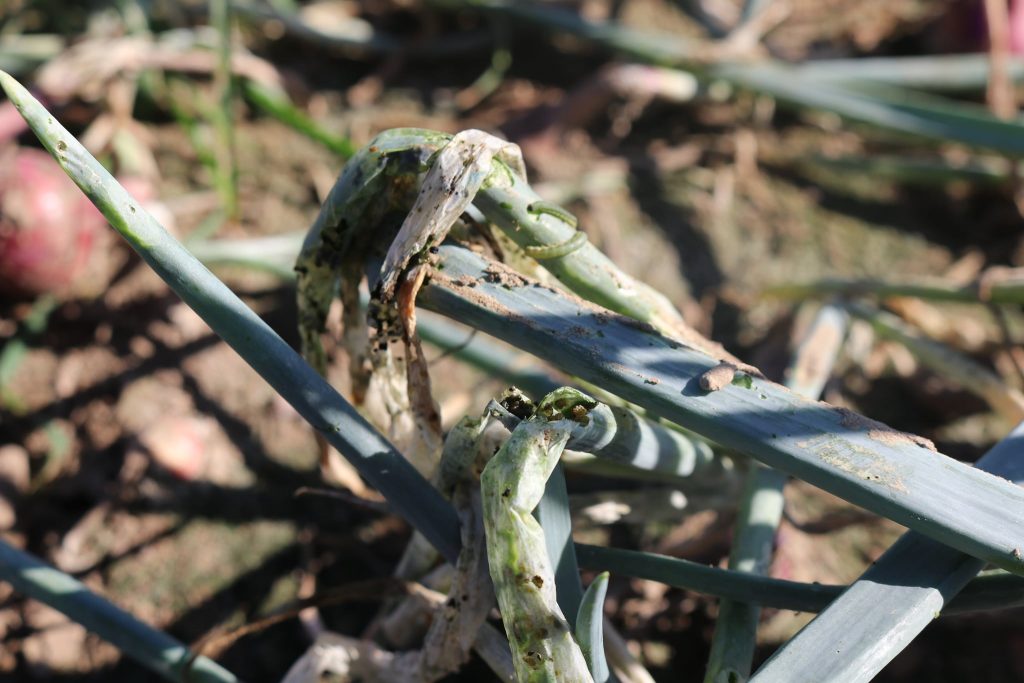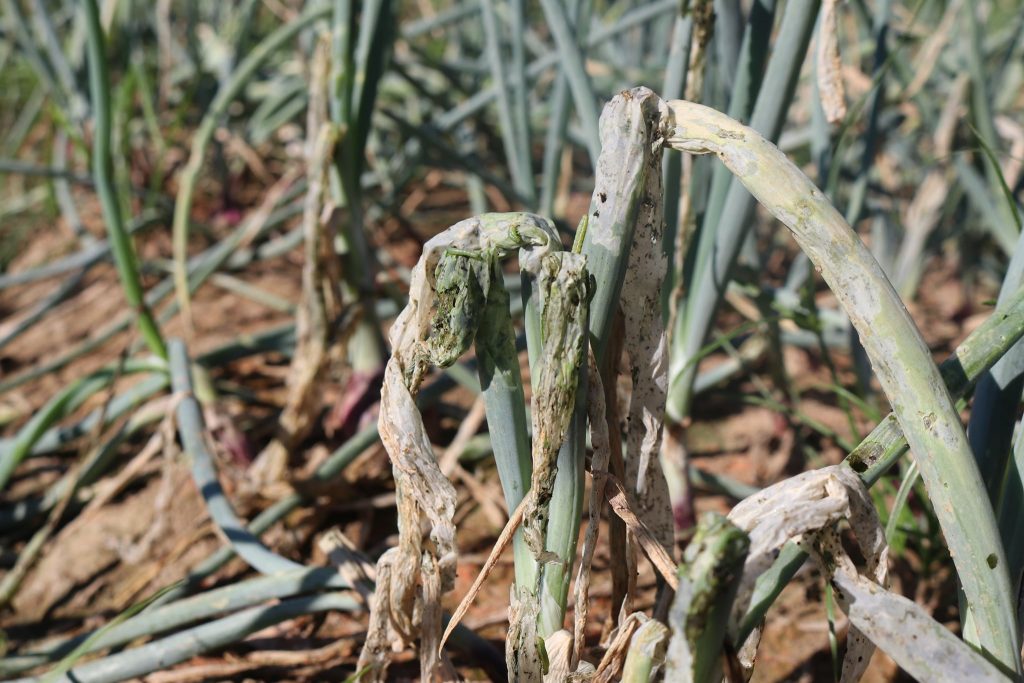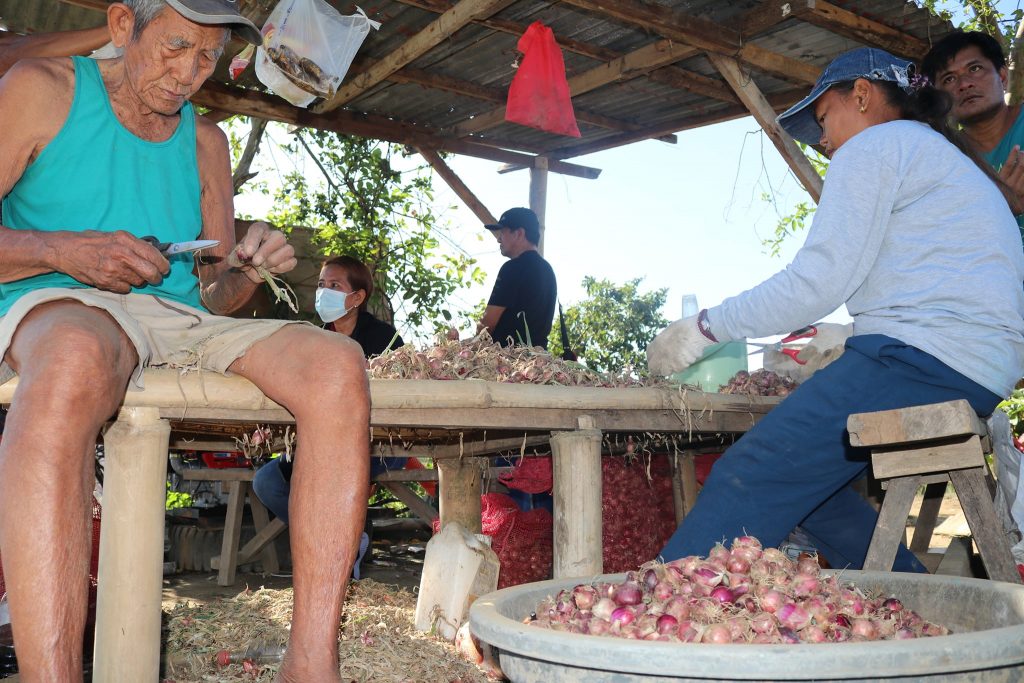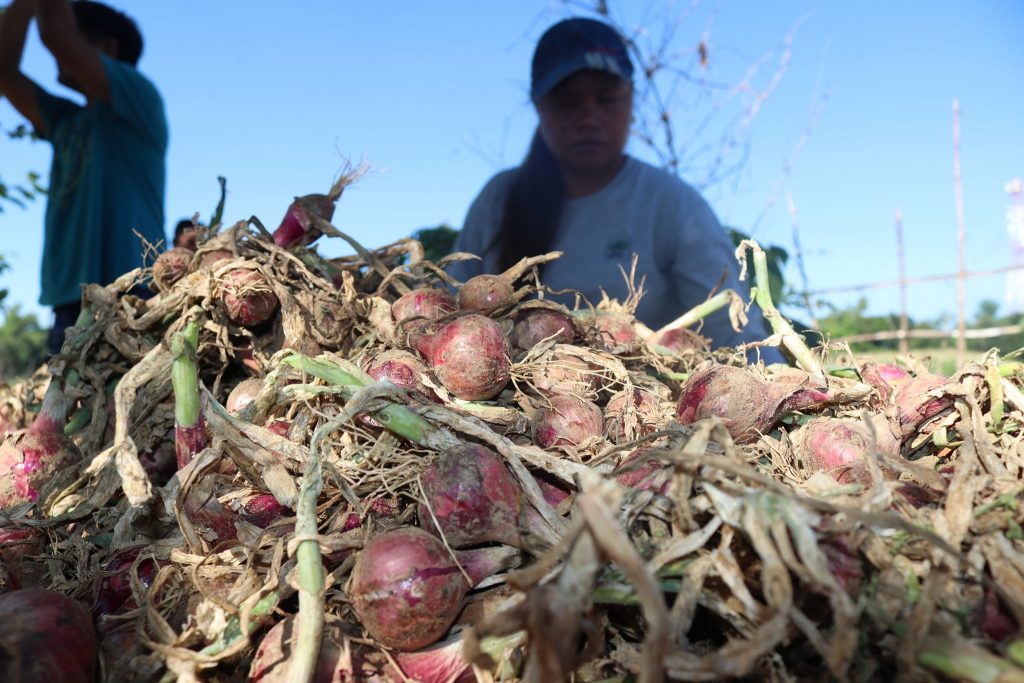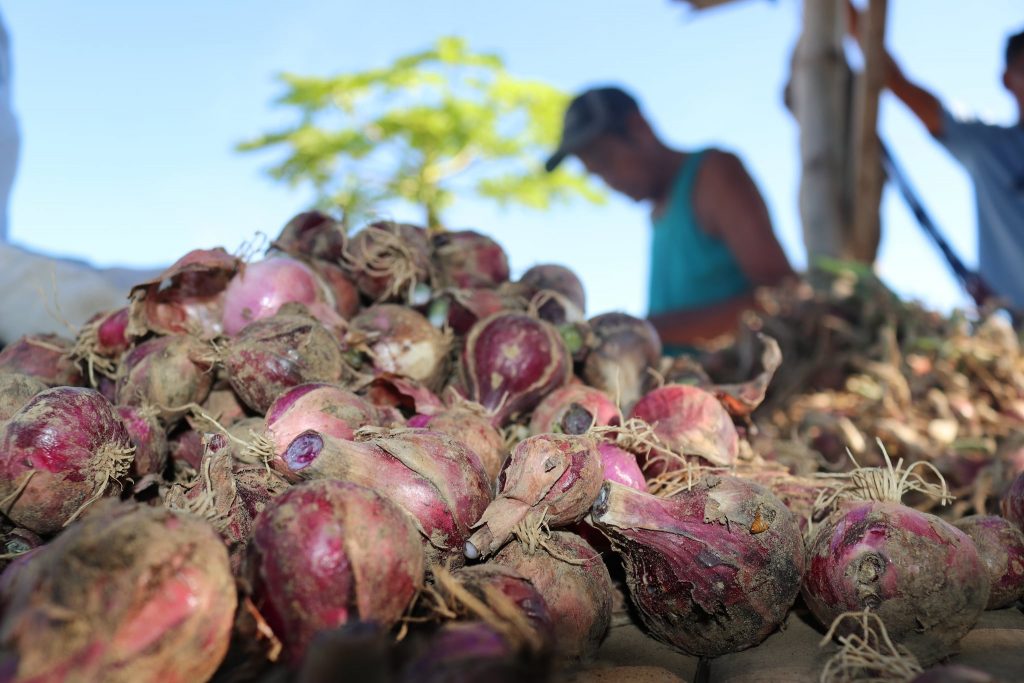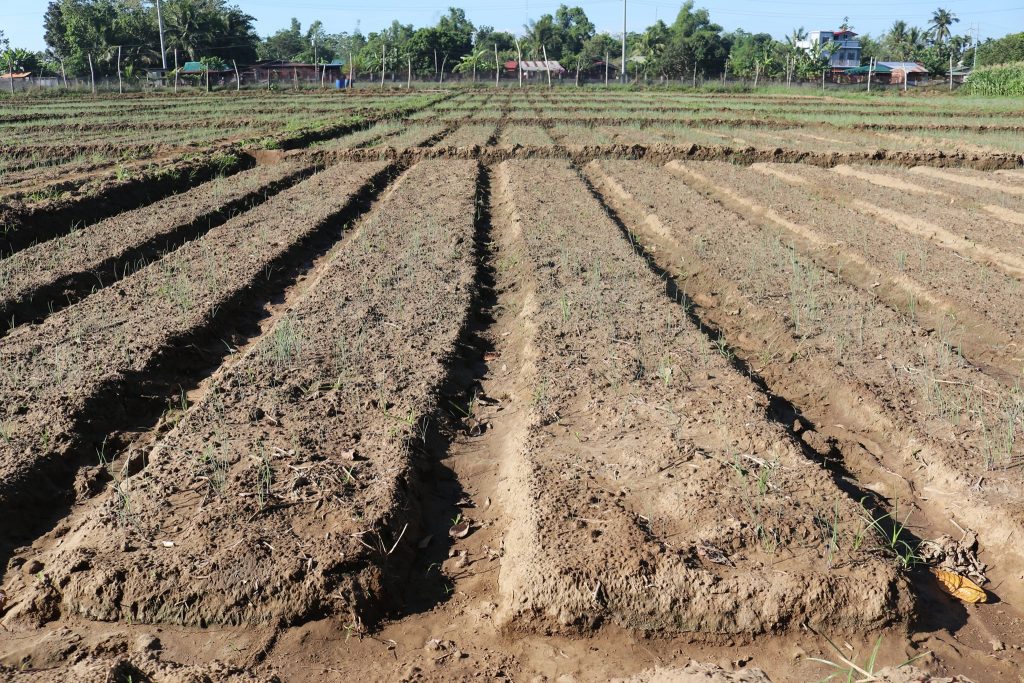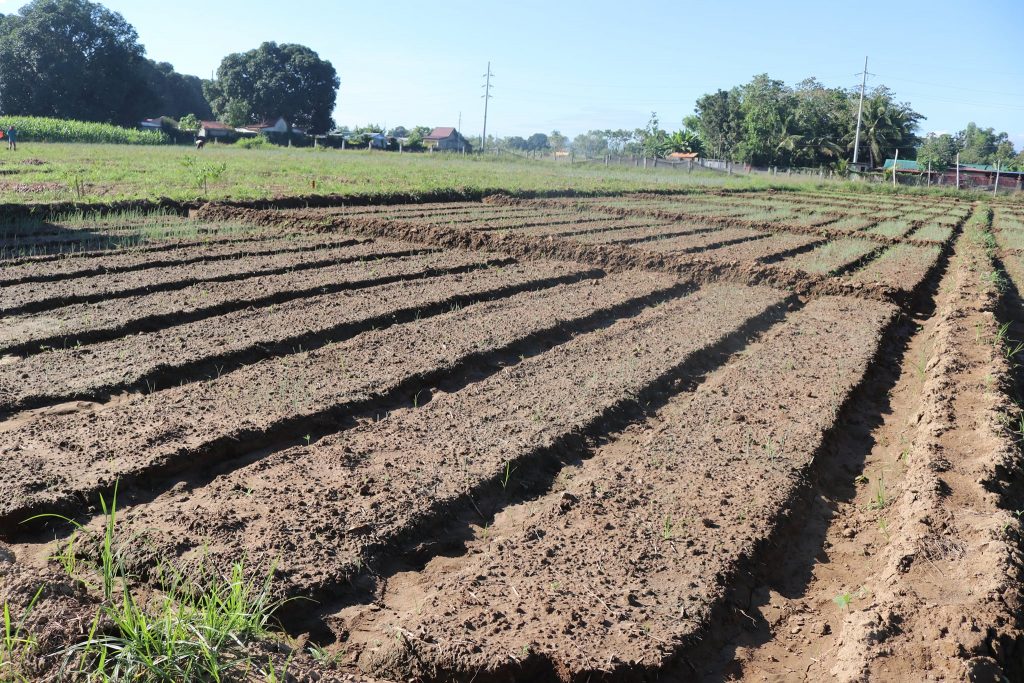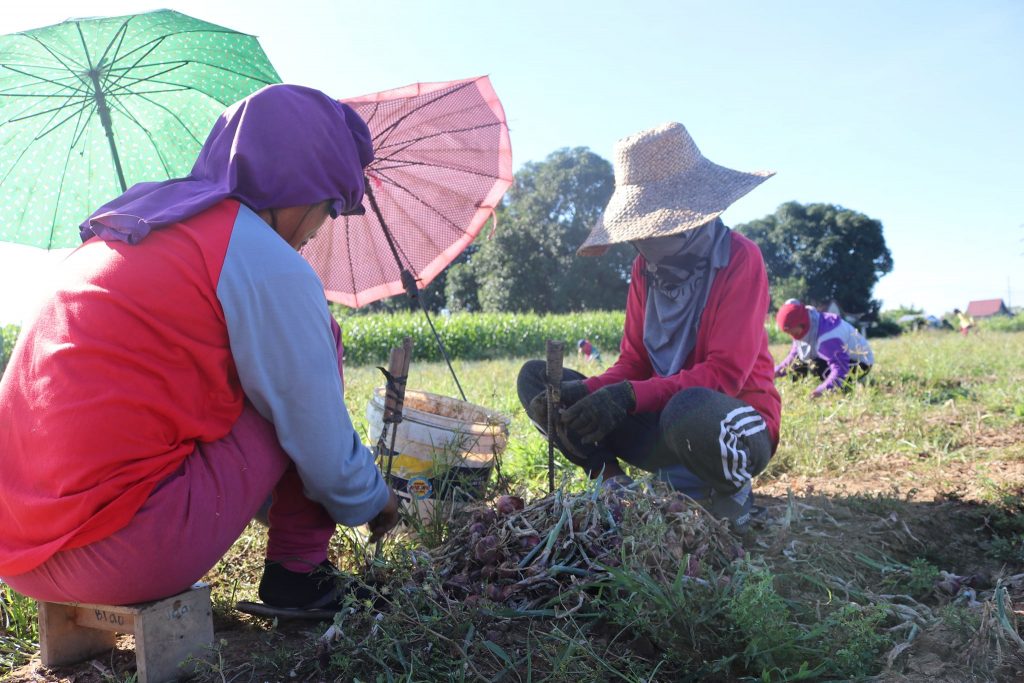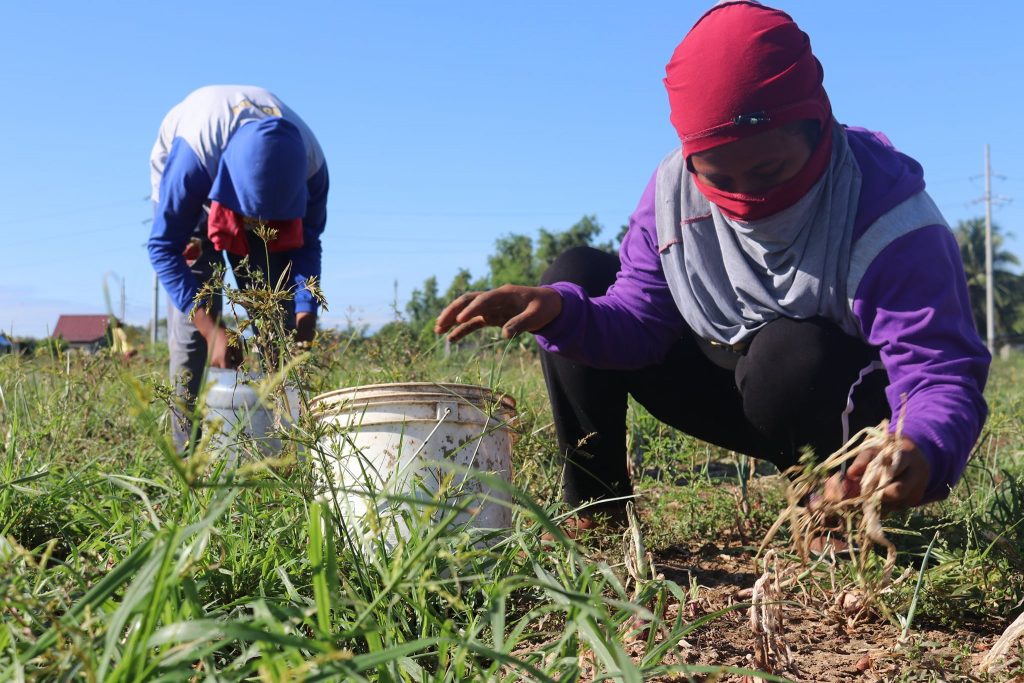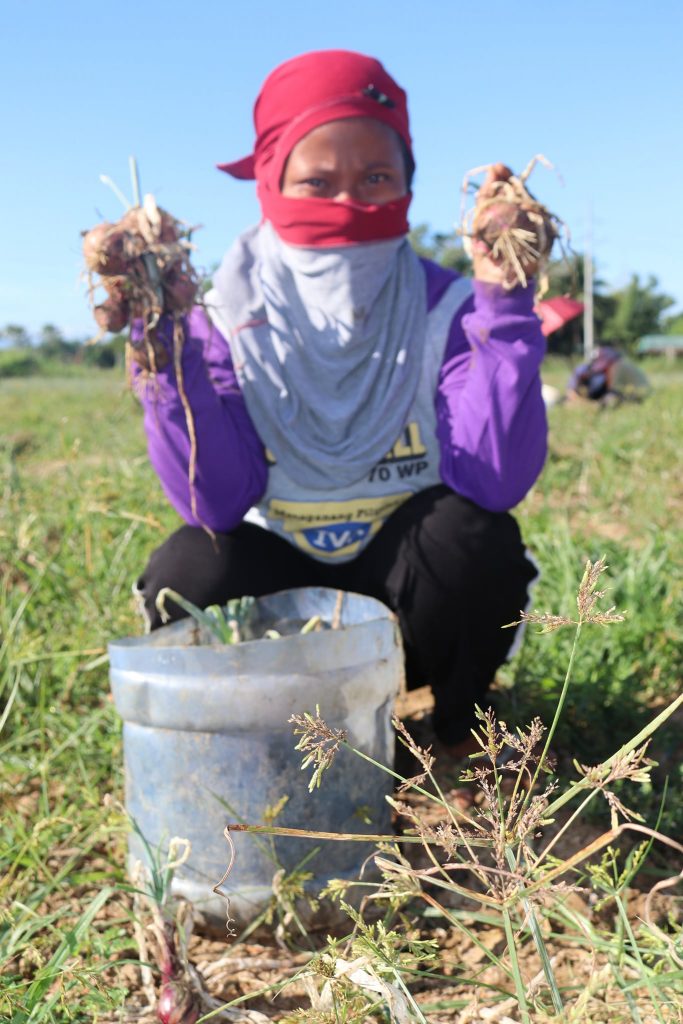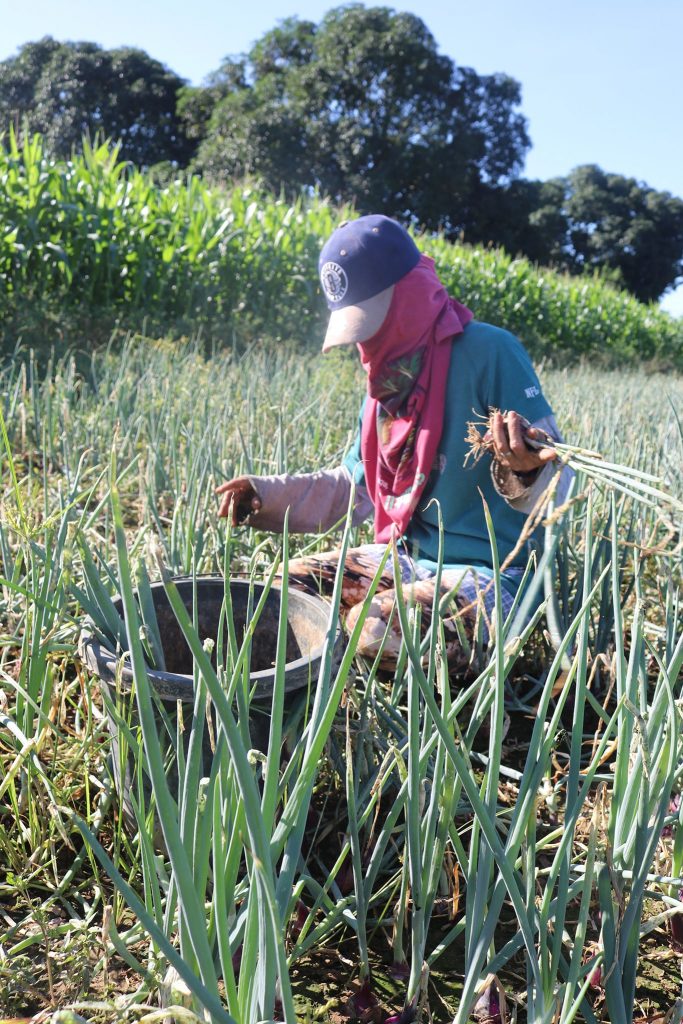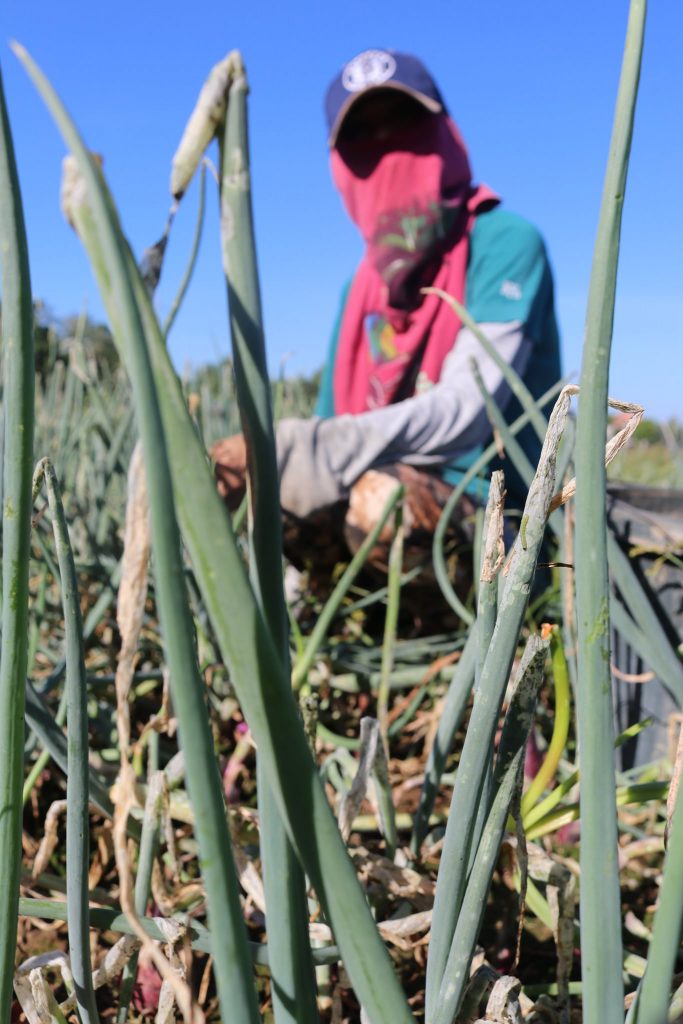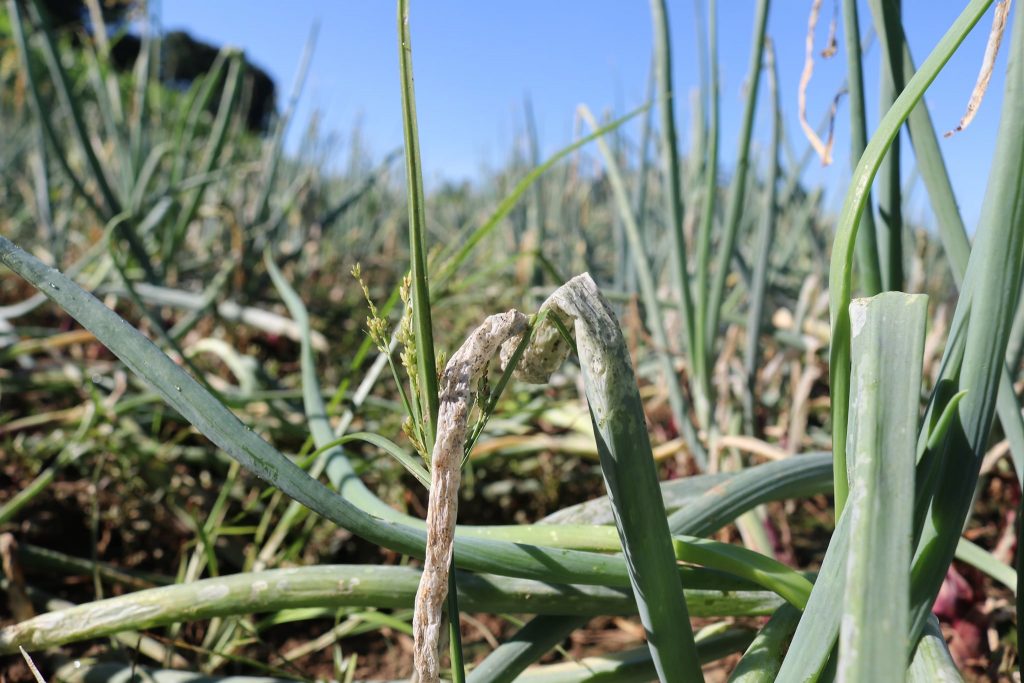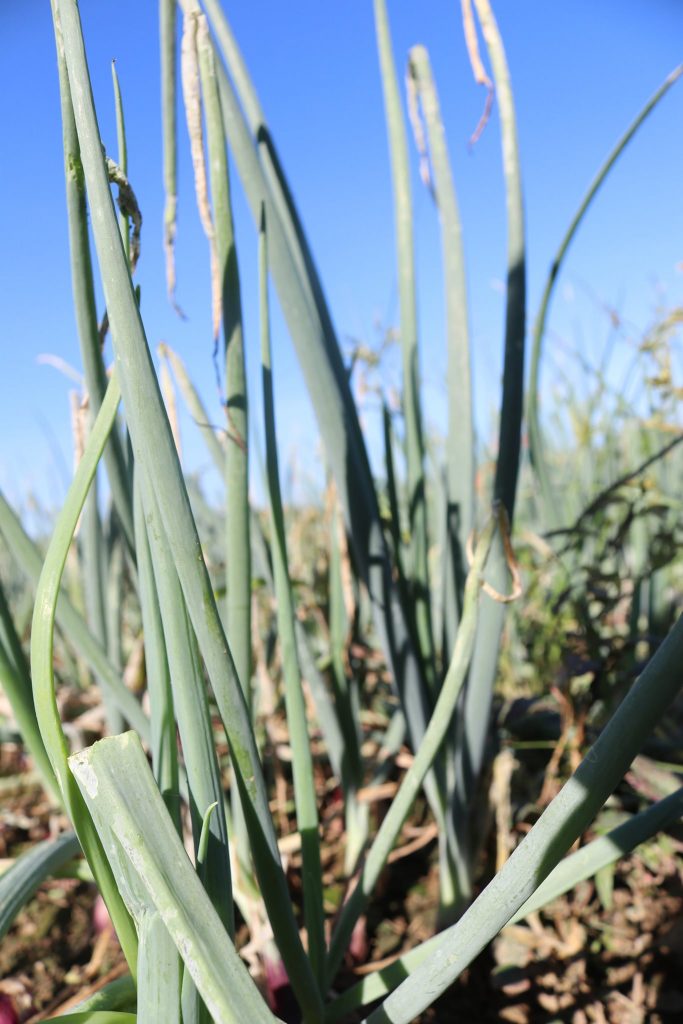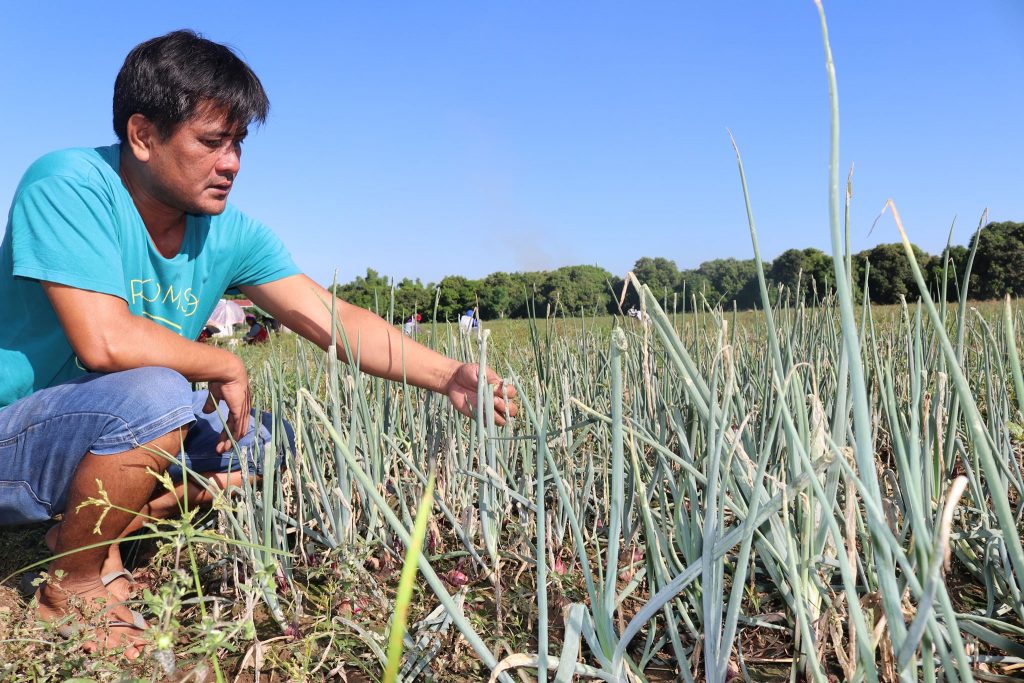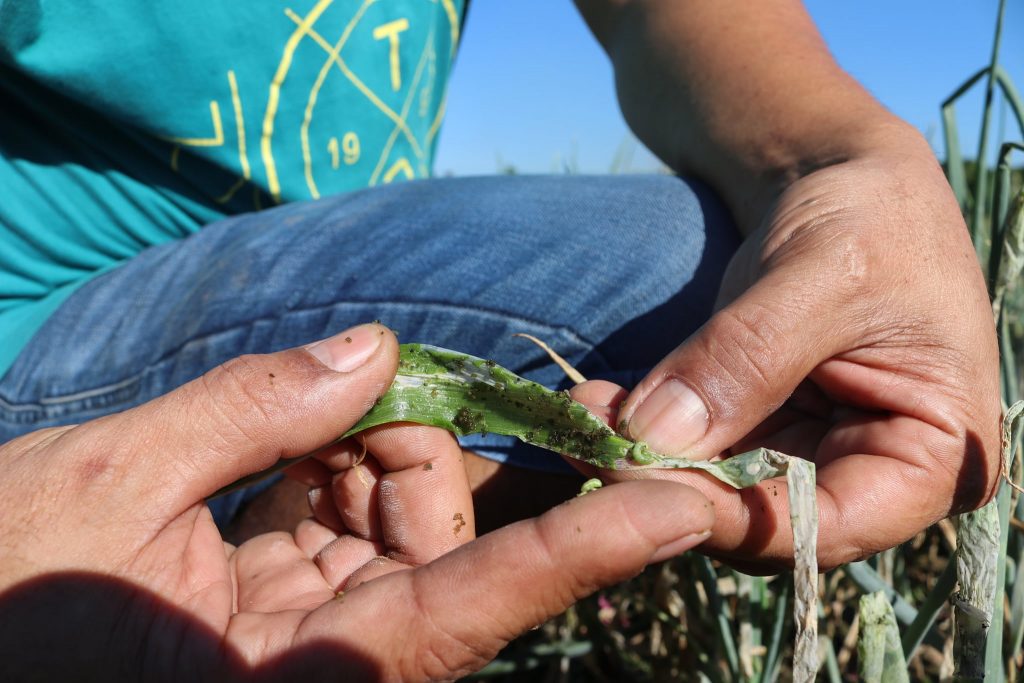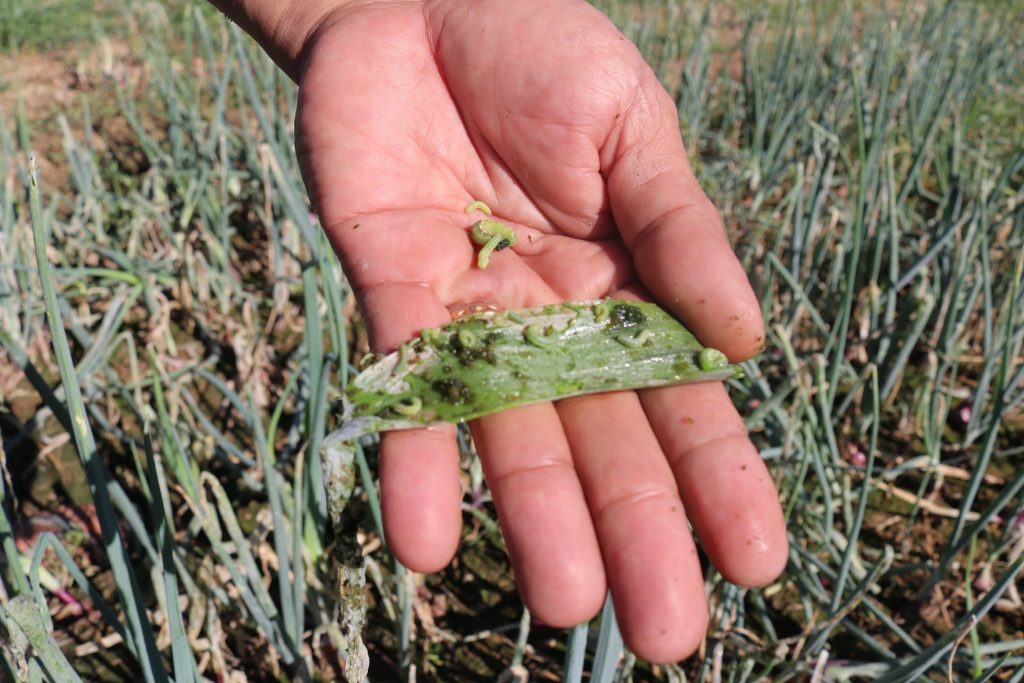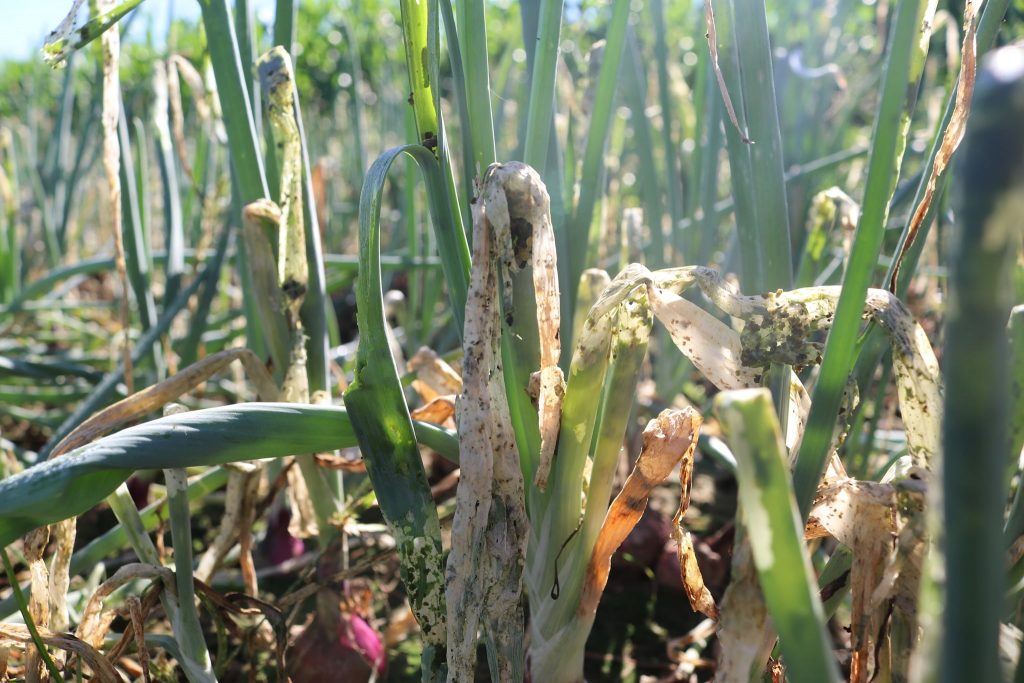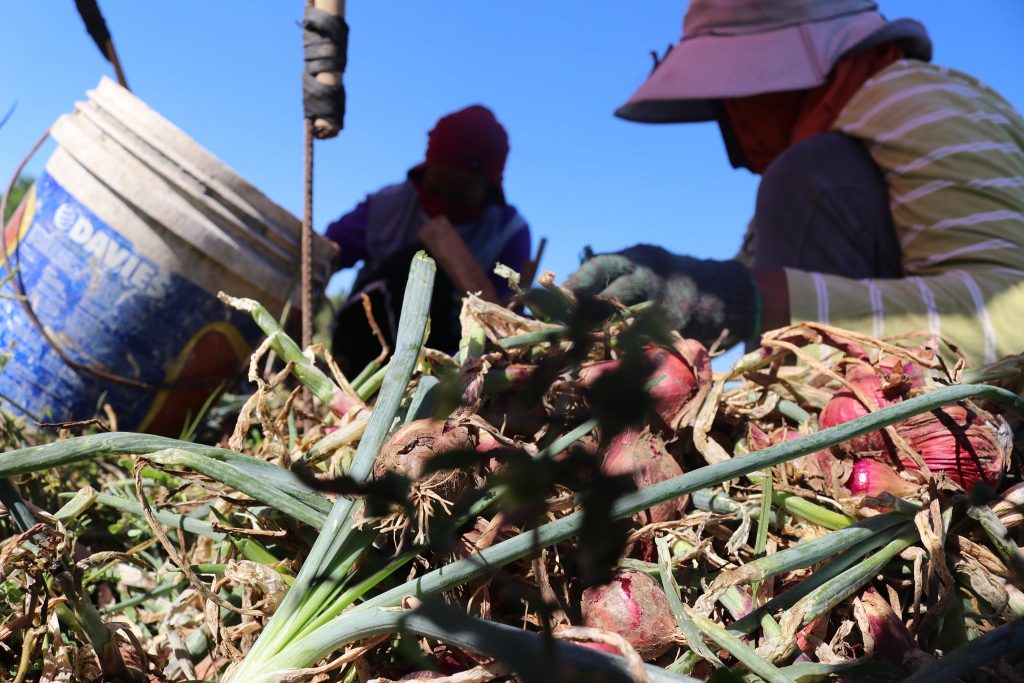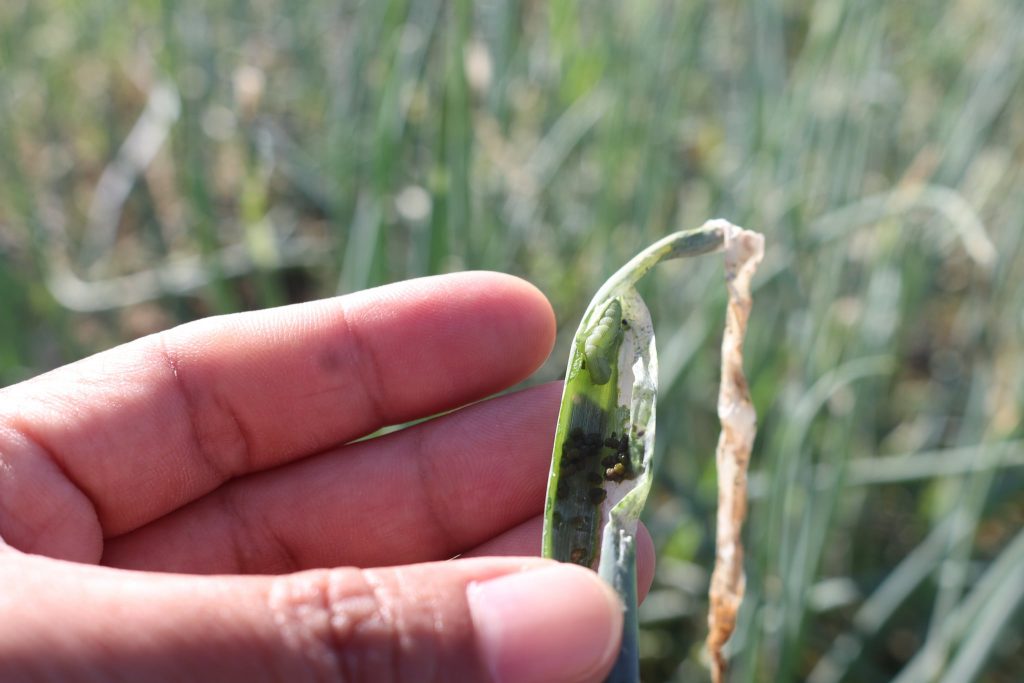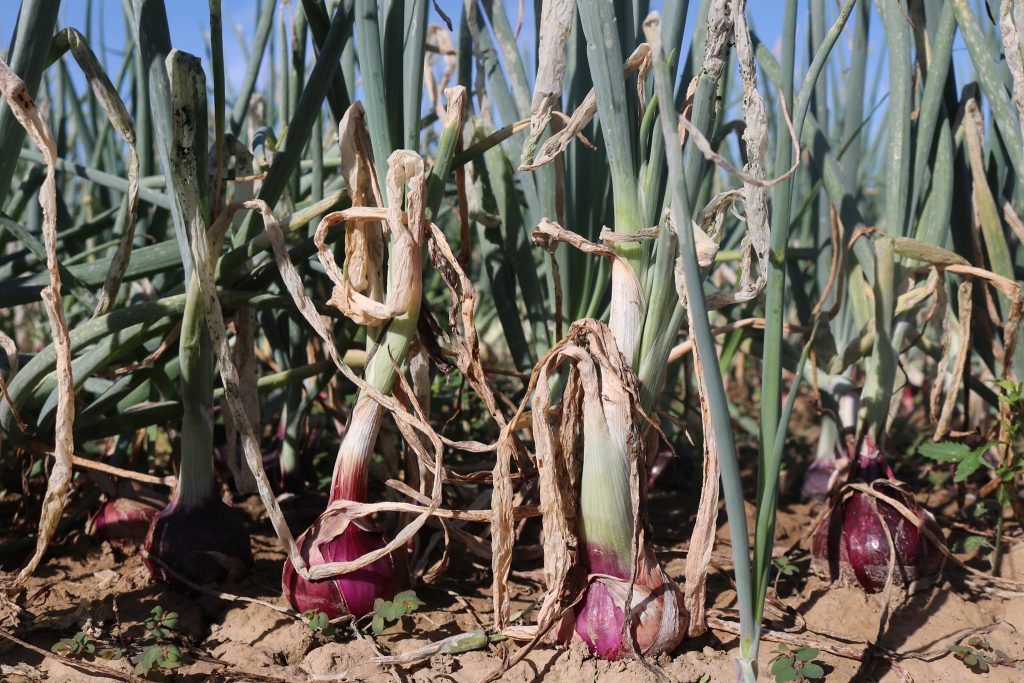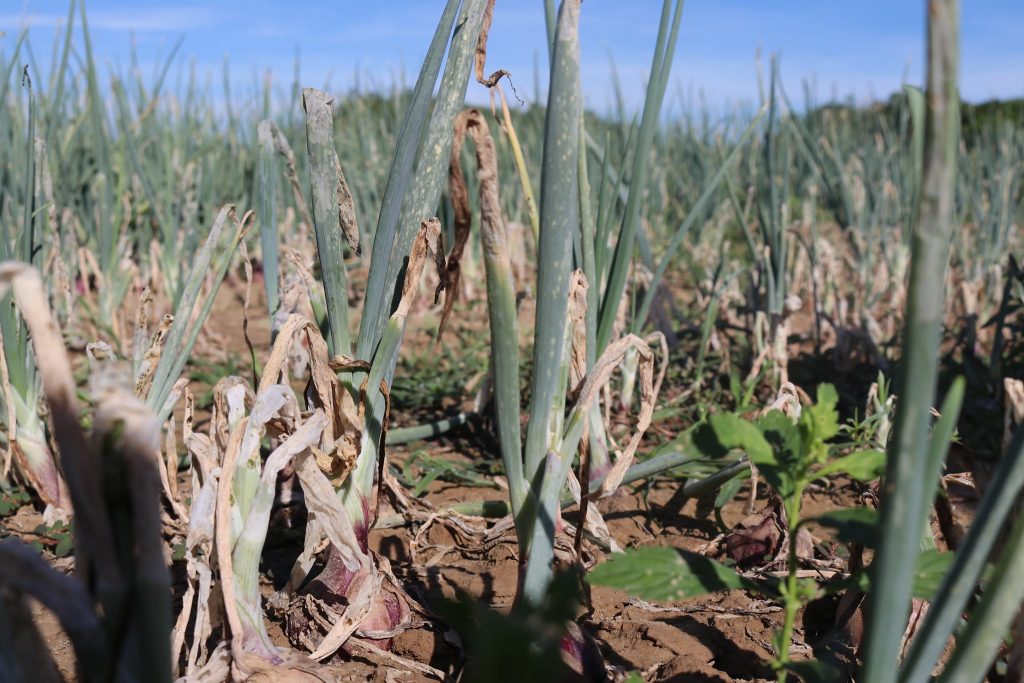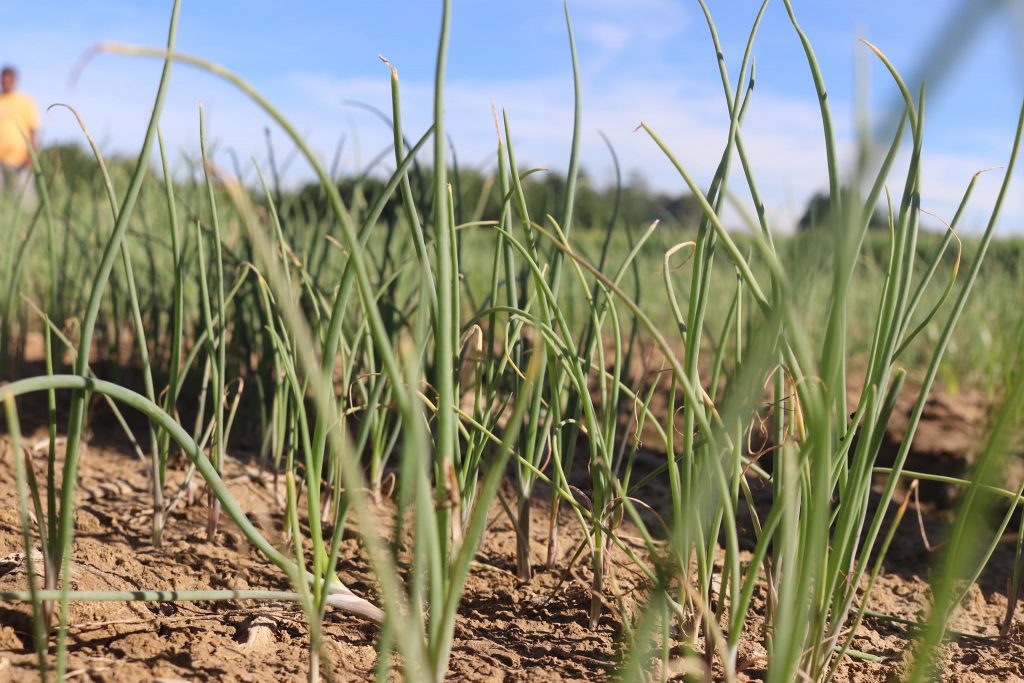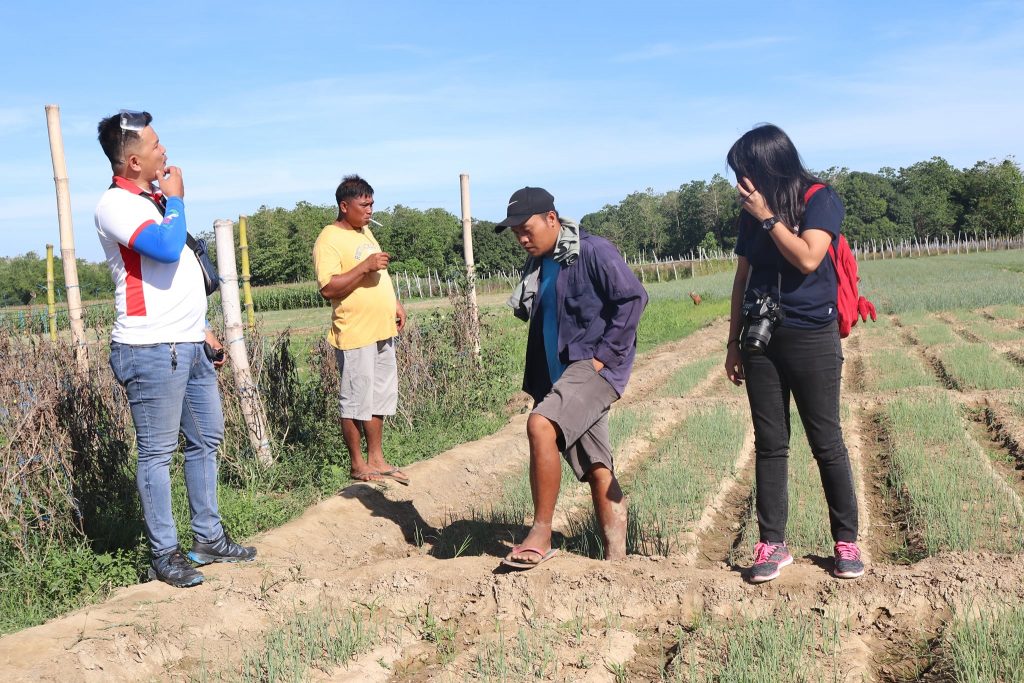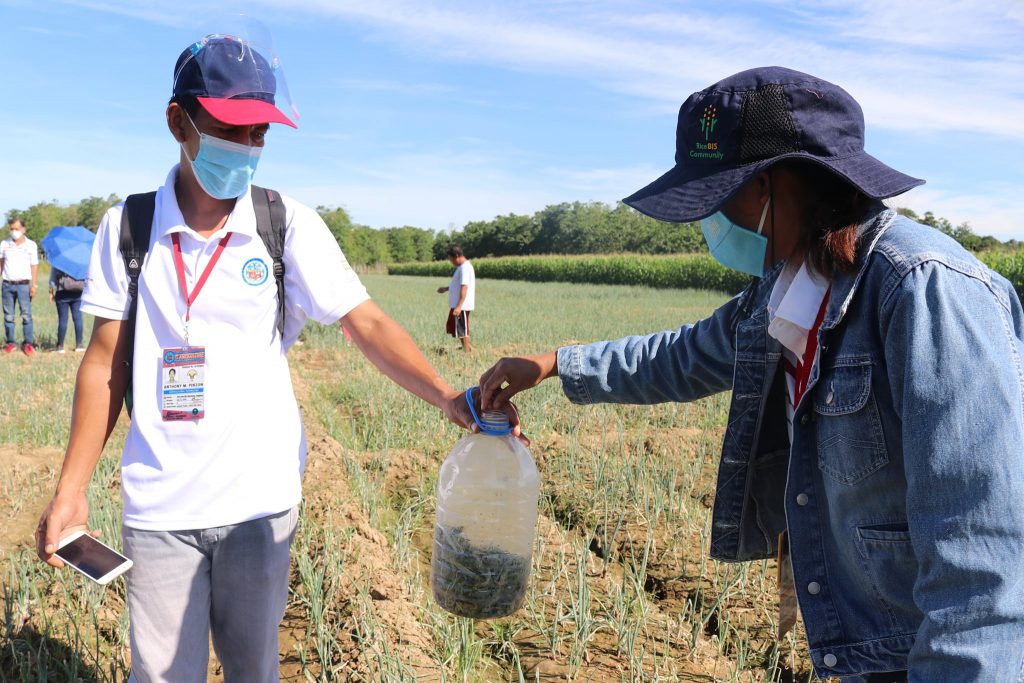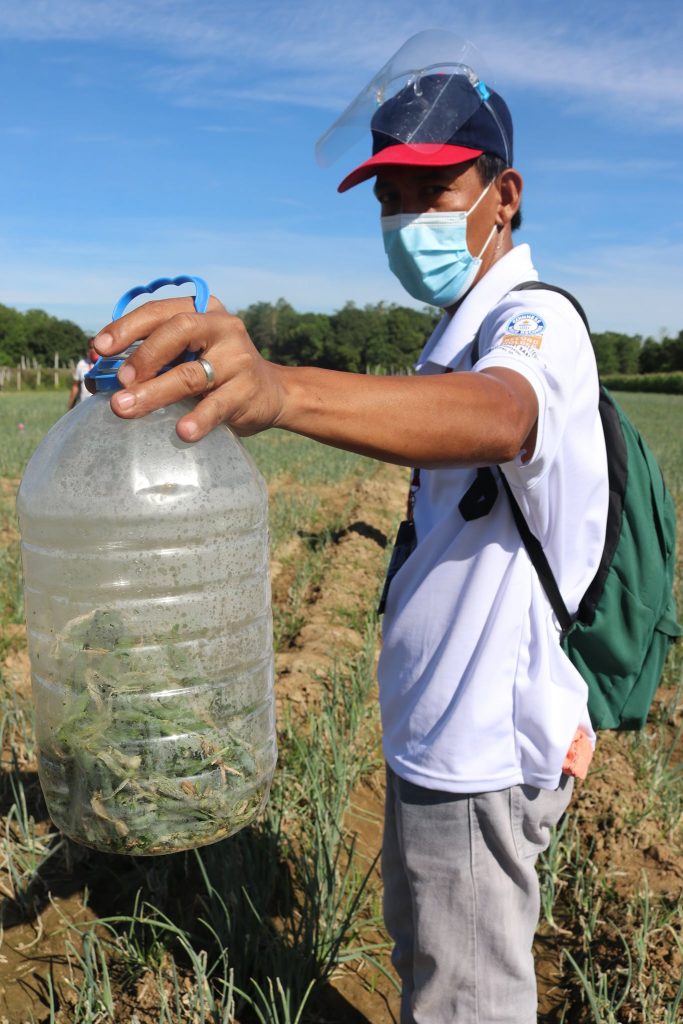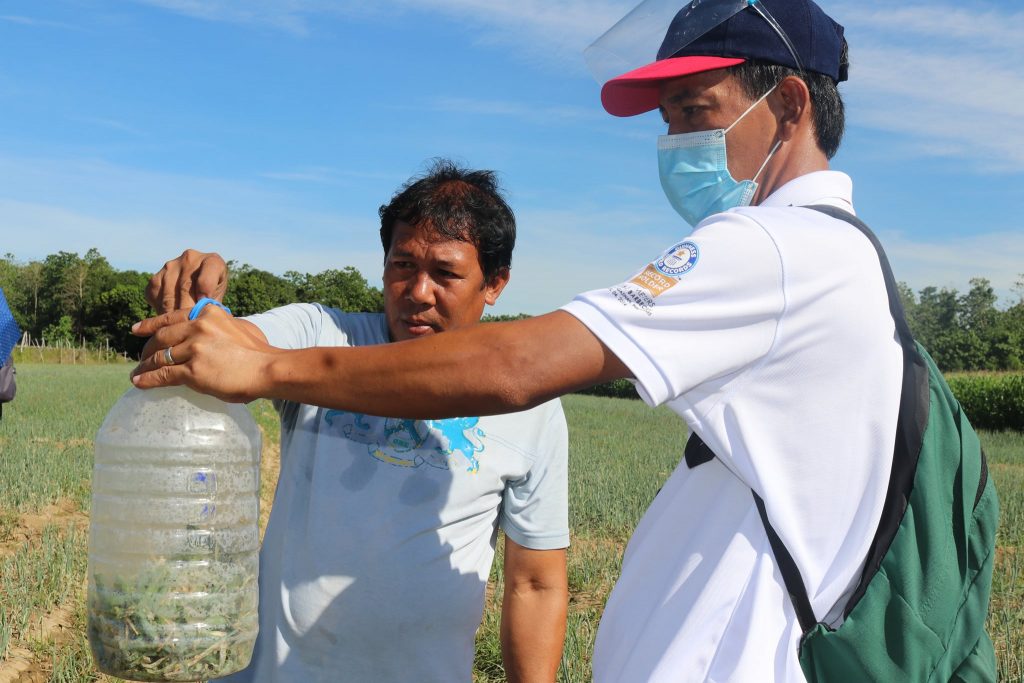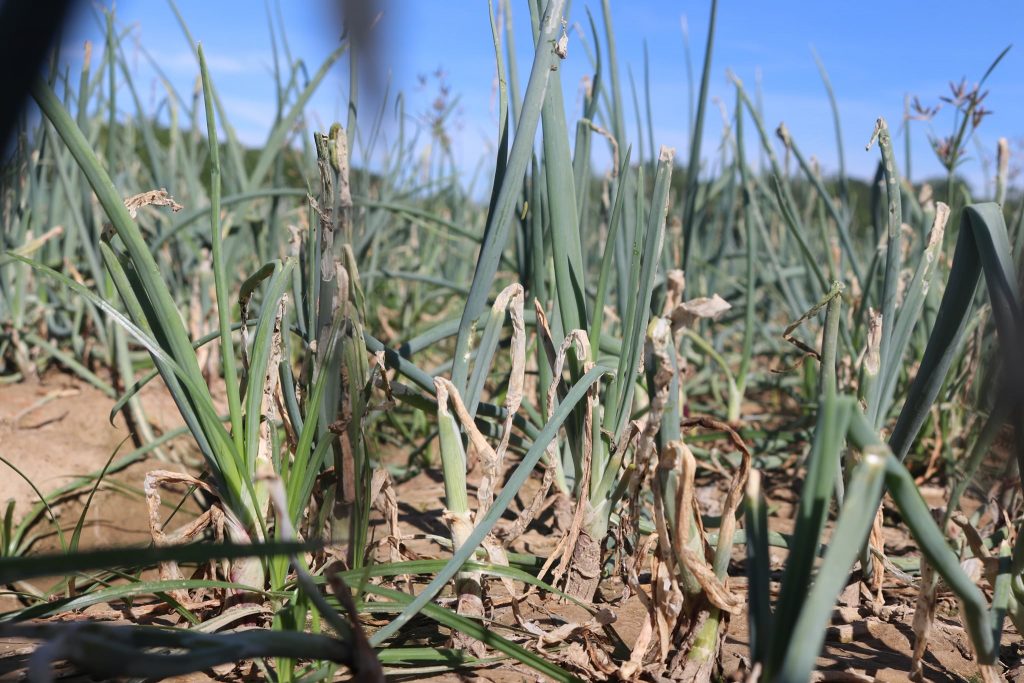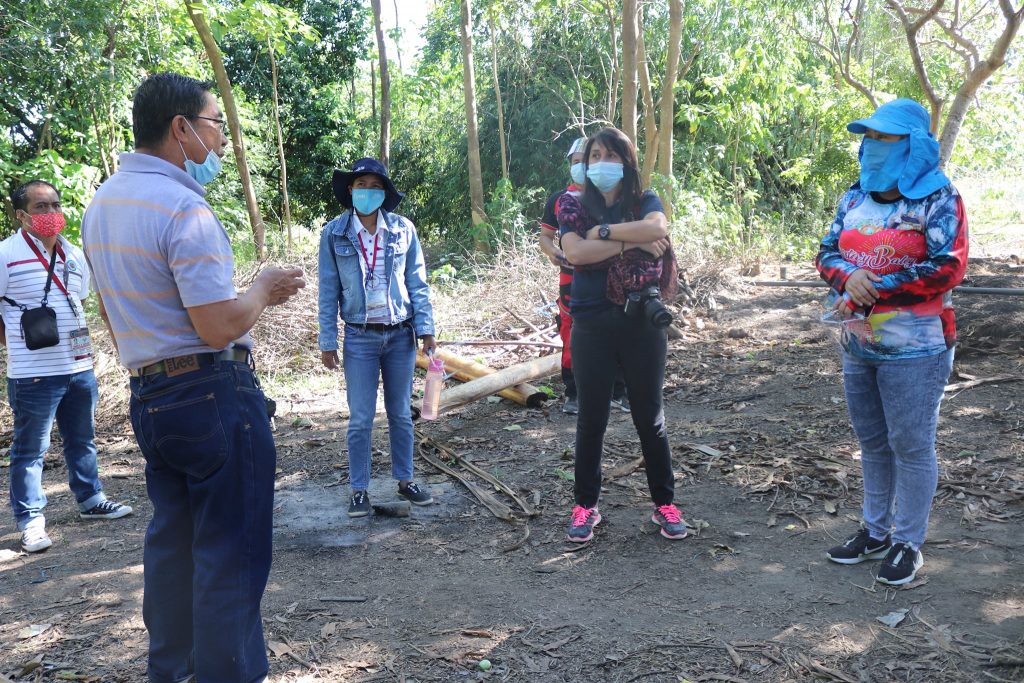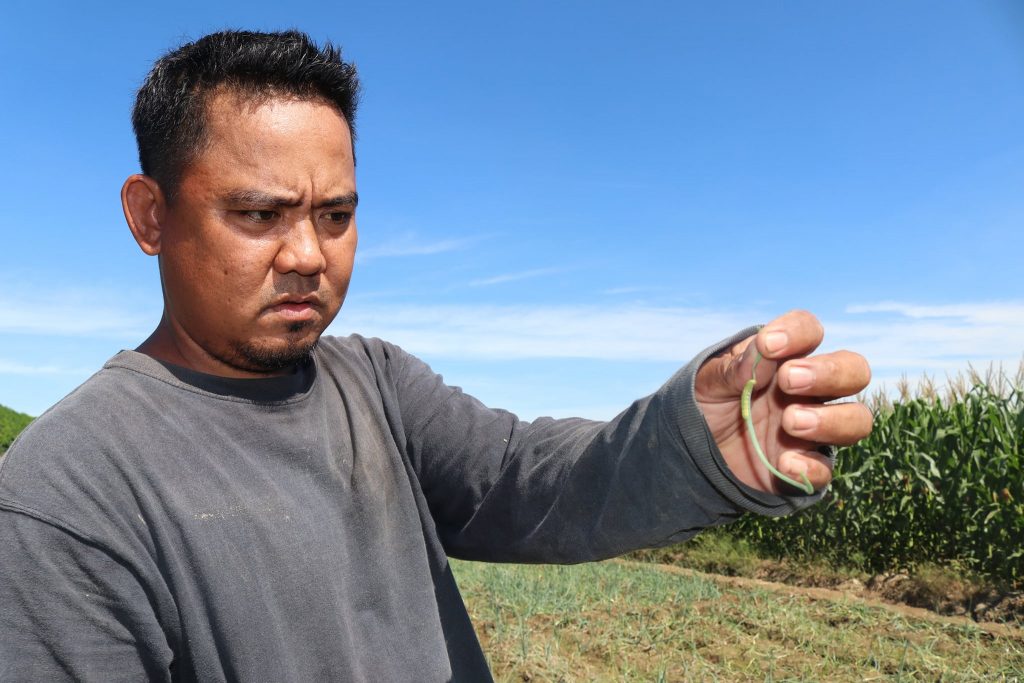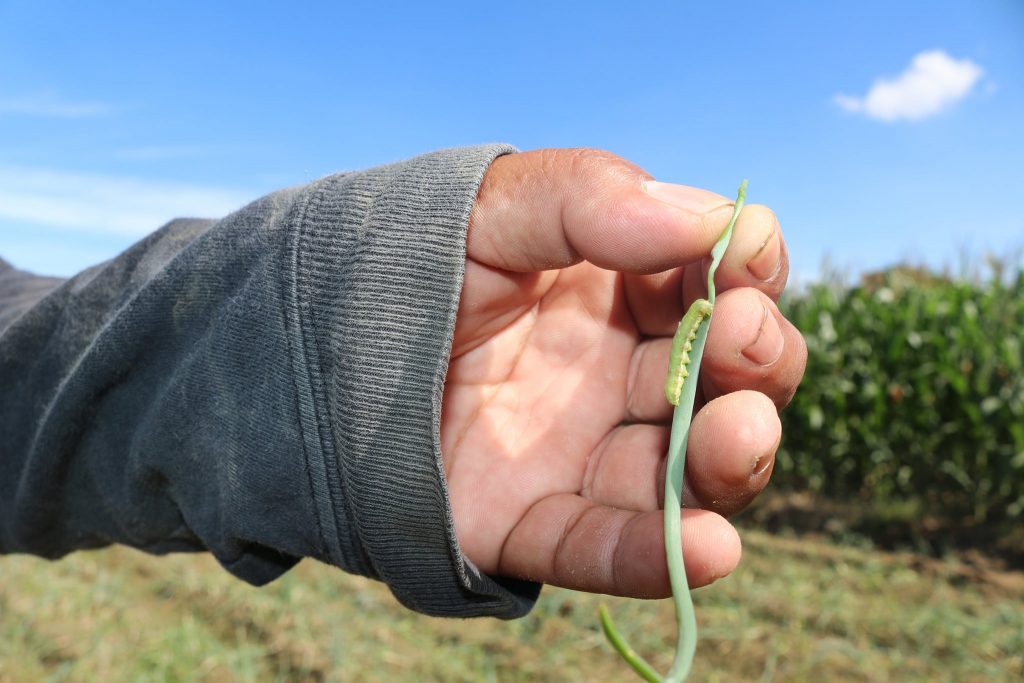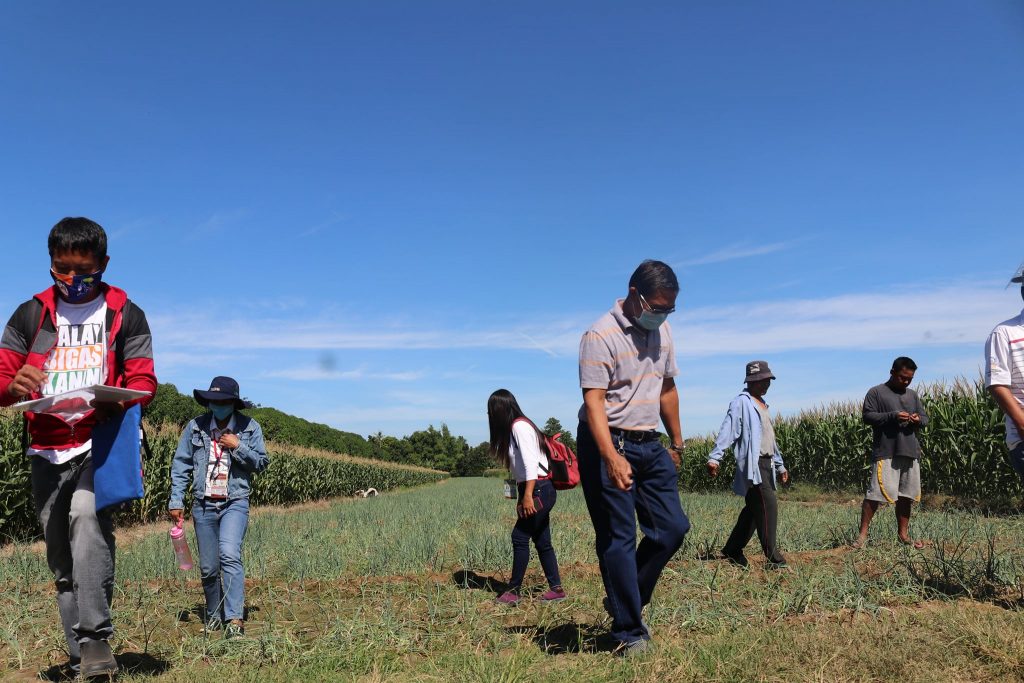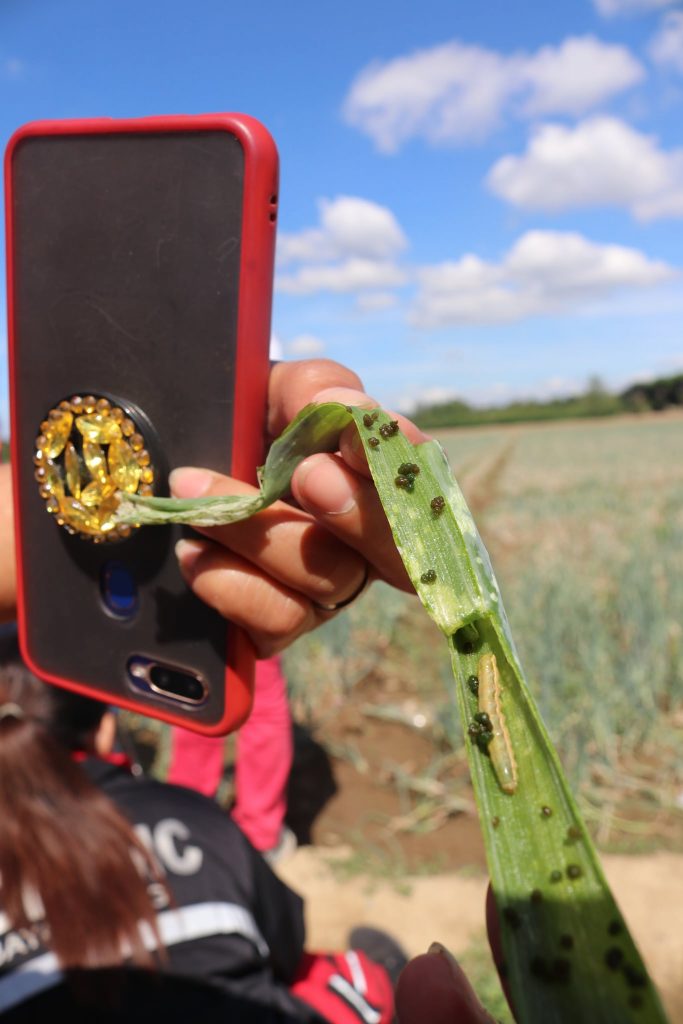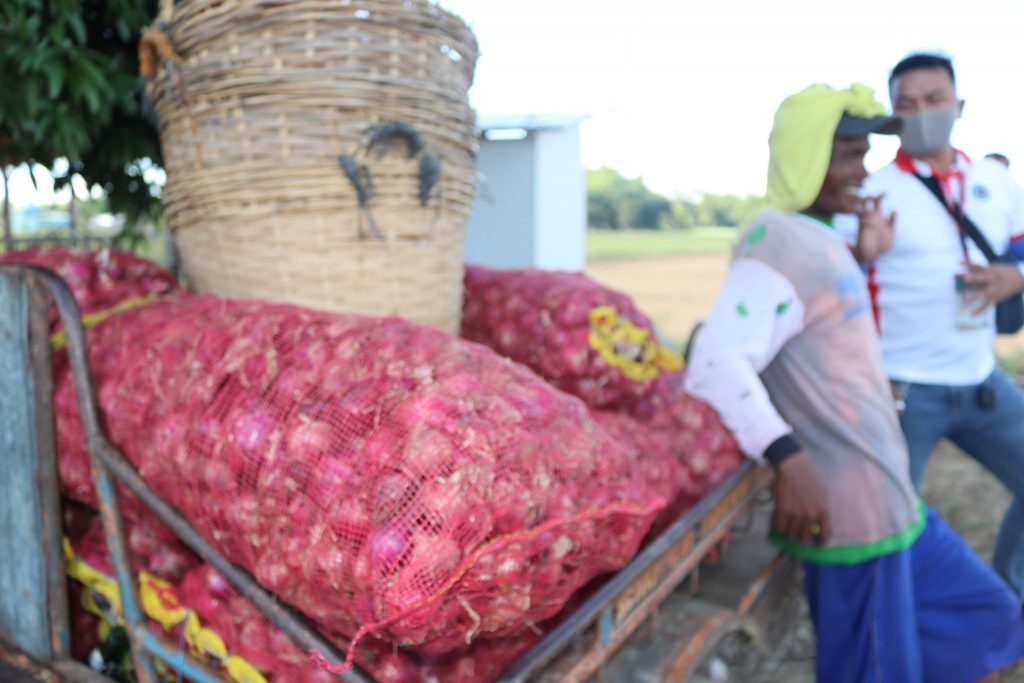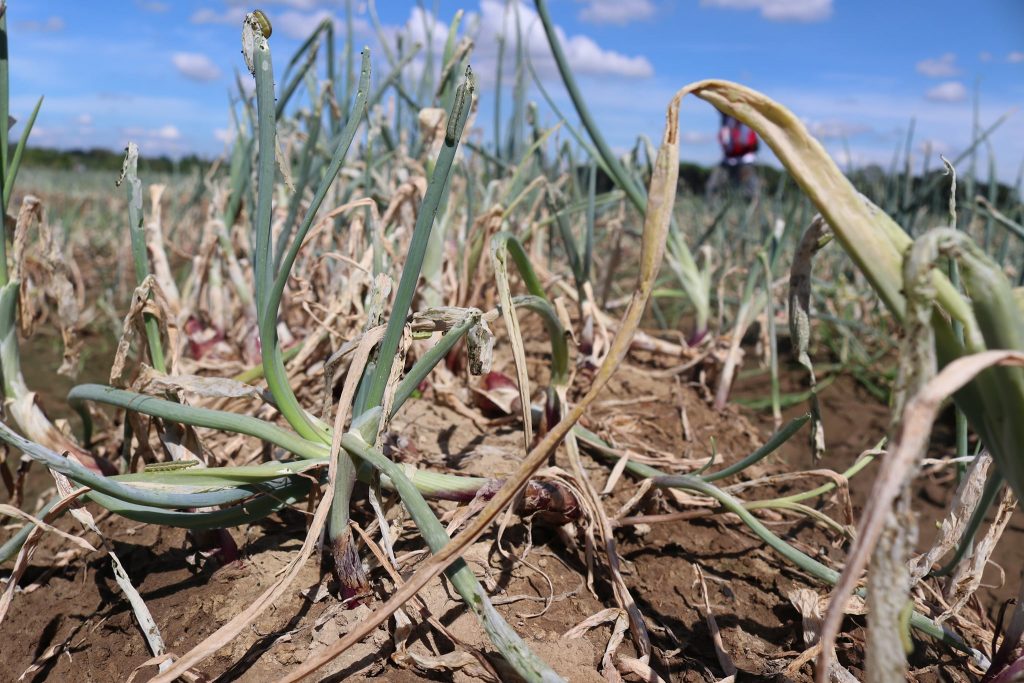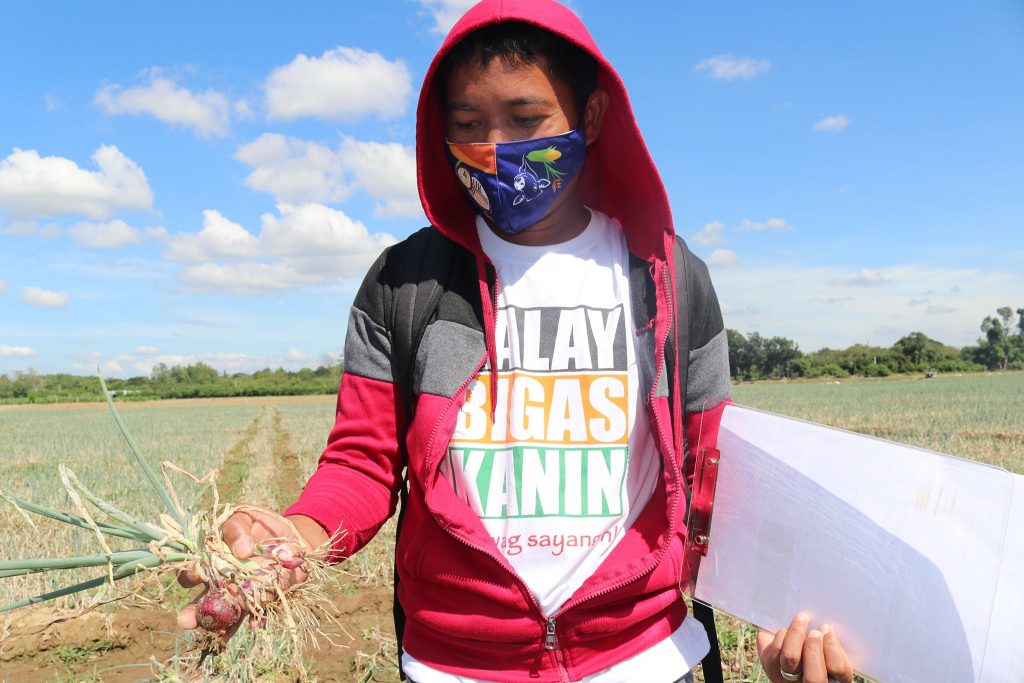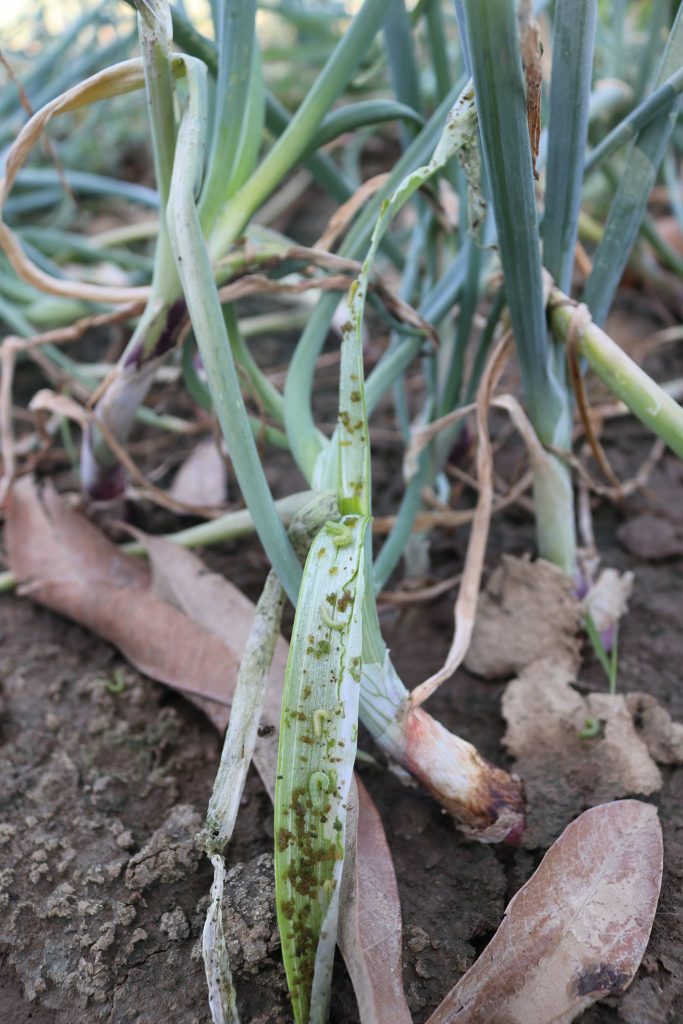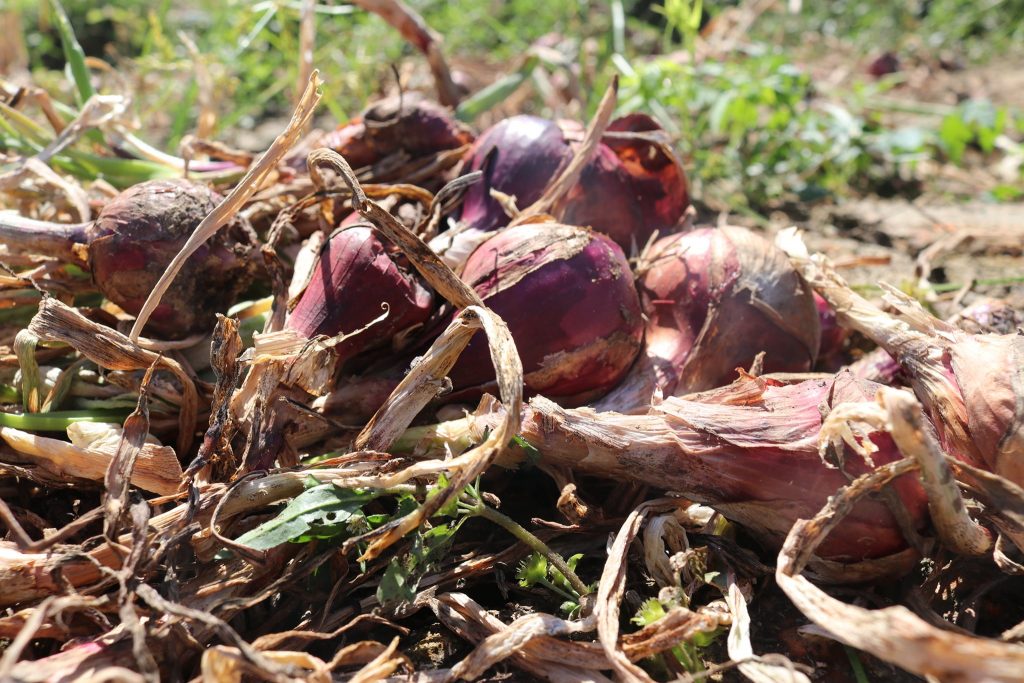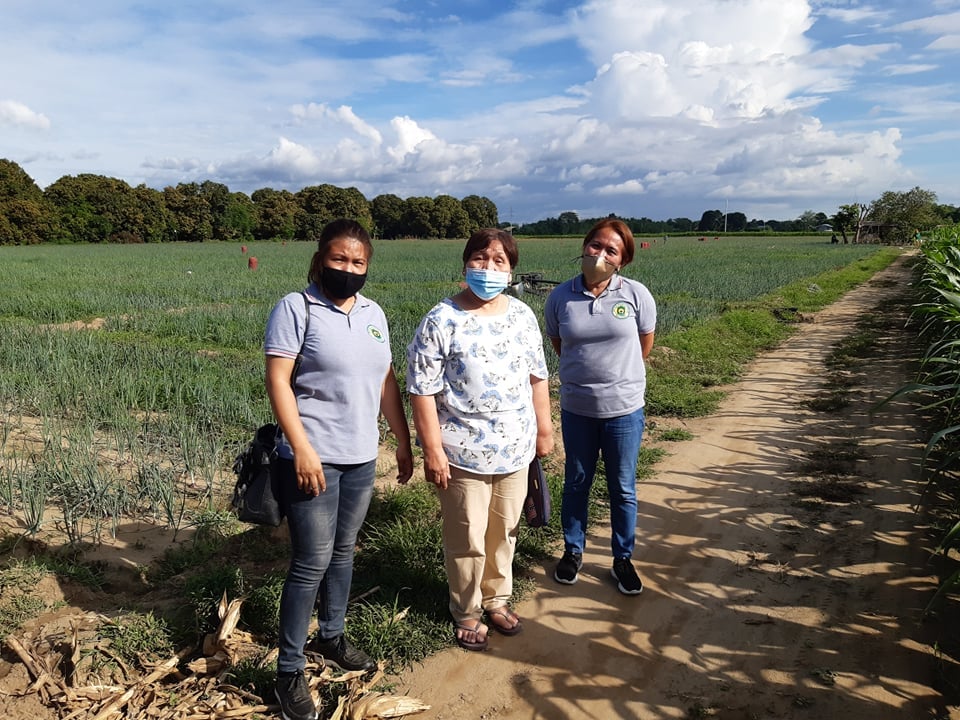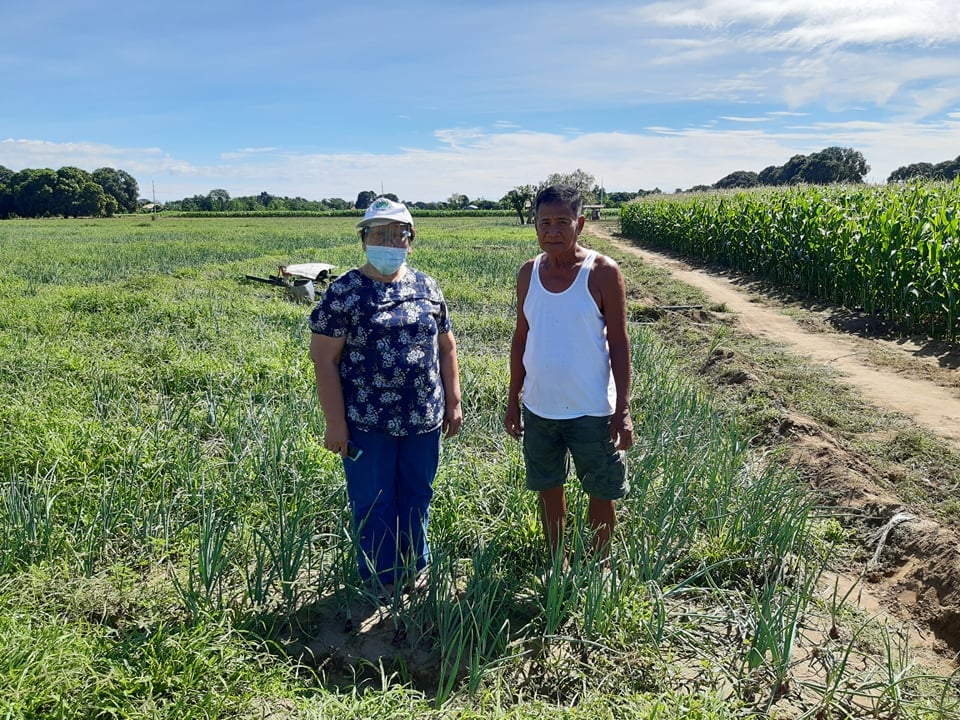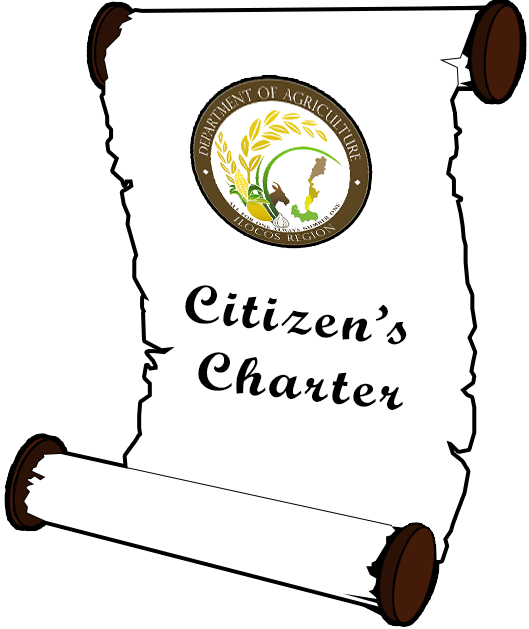Giving hope to distressed onion farmers in Bayambang, Basista and Bautista in Pangasinan brought by the anthracnose and armyworm infestations in the area, the Department of Agriculture Ilocos Region provided pest control interventions such as copper-based fungicides, organic as well as biological control agents in an effort to salvage onion crops affected by said pests and still bring harvest to these onion producing municipalities.
As soon as the report of said pest incidence was relayed to the DA-Regional Office, DA-RFO I OIC Regional Executive Director Nestor D. Domenden mobilized the Research group spearheaded by Regional Technical Director for Research & Regulations Dr. Jovita M. Datuin, together with Regional Crop Protection Center (RCPC) staff, to do field monitoring and validate the report.
As monitored, the incidence of infestation falls under moderate to severe infestation in the onion production areas in said towns.
Based on initial report gathered, a total of 410 hectare were infested with 160.1 hectares in Bayambang and 193.7 hectares in Bautista which translated to 21% of the total area planted with onion in both towns posing possible loss of harvest to about 502 onion farmers.
Mr. Bonifacio Bautista, an onion farmer in Bayambang, Pangasinan, one of the most badly hit farmers by the infestation who planted onion in his five-hectare farm area seeks for assistance as he projects major loss of about P800,000 to a million if he fails to harvest even on a break-even scale.
In Brgy. Quetegan, Bautista, Pangasinan, Mr. Rodolfo Cabag who planted onion in his 2.5 hectare farm foresee a harvest of only about 10 to 15 bags (@28-30 kg per bag) from his expected harvest of onion this January as most of his ready to harvest crops were already infested by armyworm.
Expecting around 300 bags of production per hectare in onion on a normal condition, farmers like Mr. Bautista and Mr. Cabag would incur about 97% reduction on their production due to the armyworm infestation.
“Luging-lugi po kami ngayon. Sana matulungan kami ng gobierno na makabawi at sana yong mga inutangan namin ay hindi na muna kami sisingilin. Sa susunod na lang na pagtatanim baka sakaling makabawi kami sa susunod na planting season,” appeals Bautista
In a follow-up field monitoring made by the Integrated Laboratories Division (ILD) headed by Dr. Gilbert Rabara, ILD Chief, he recommended possible solution to address the pest infestation in the area. One of which to change the cropping pattern like planting of vegetables and other high value crops to break the life cycle of the pests in the farm area.
Field sanitation, and the installation of pheromone lures including deep plowing of the field during land preparation were also recommended to properly manage the farm and prevent pest infestation like the armyworm.
The use of chemical insecticide is highly discouraged while biological control agents such as Nuclear Polyhedrosis Virus (NPV), metharizium species earwig, botanical insecticides are recommended to control the infestation.
One of the recommended input which is an 8-in 1 foliar fertilizer that also act as insect repellant, soil conditioner, growth enhancer, and as bio-fungicide and bactericide made out of kelp extract with no chemical mixture was given to the farmers by DA-RFO I so as to control the infestation. As testified by some of the farmers who were able to apply this on their pest-infested crops, it showed promising effect according to the farmers as it was able to rejuvinate some of the crops and showed signs of recovery.
However, technical experts who were promoting said plant growth enhancer advised that to maximize the full benefit of the bio-control agent, this must be applied at the early stage of the plant like two weeks after planting to boost the immune system of the crop against pests.
Armyworm (Spodoptera exigua H.), locally known as harabas is a destructive insect pest that can rapidly proliferate in a very wide scale in a short period of time, mostly affecting onion plantations. Bayambang and Bautista, two of the major onion-producing towns in Pangasinan are most commonly affected by armyworm incidence.
Meanwhile, the town of Caba in La Union has also reported a total of 10.91 hectare by the same pests affecting 14 farmers in the area.###
